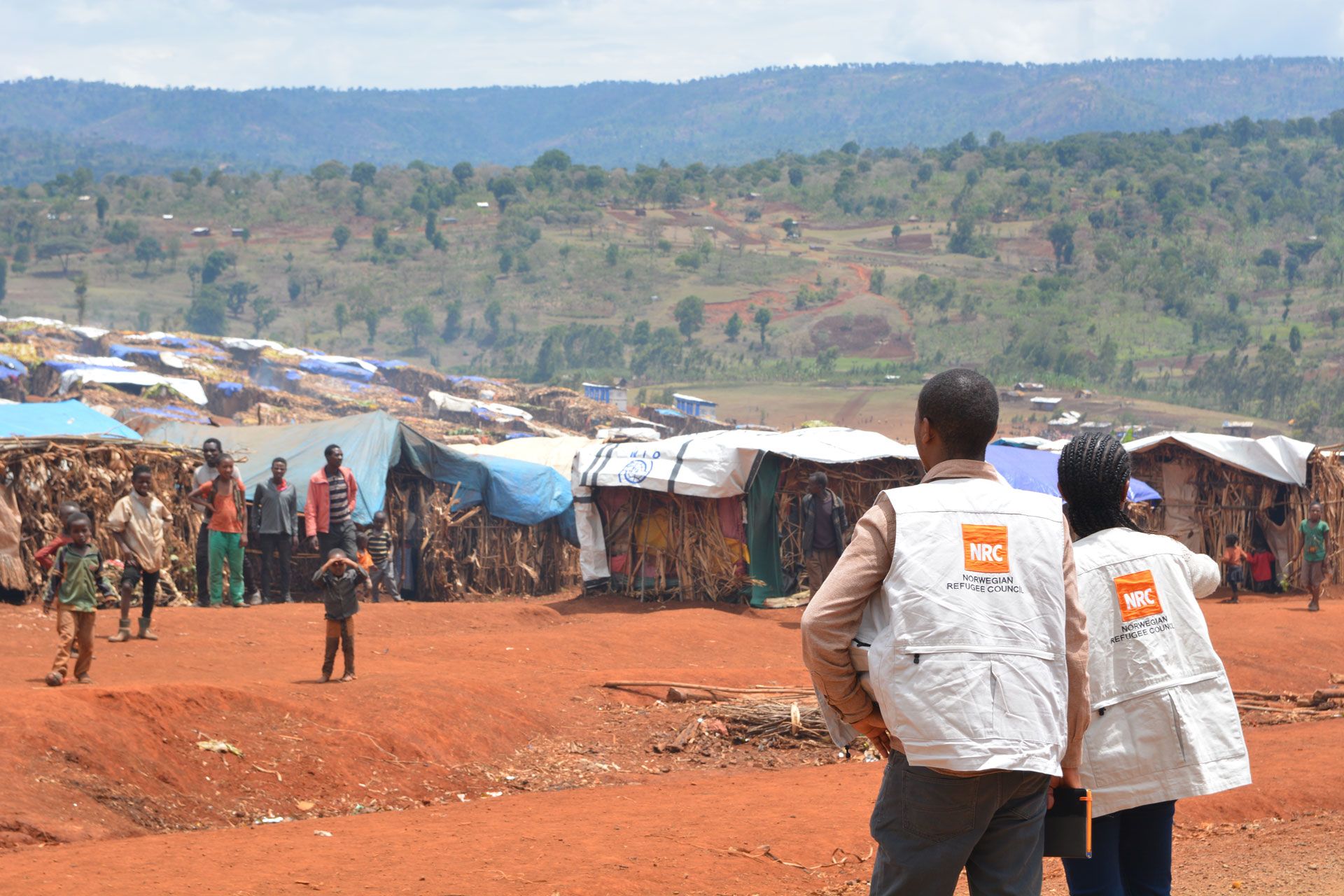Annual report 2020
NRC Ethiopia
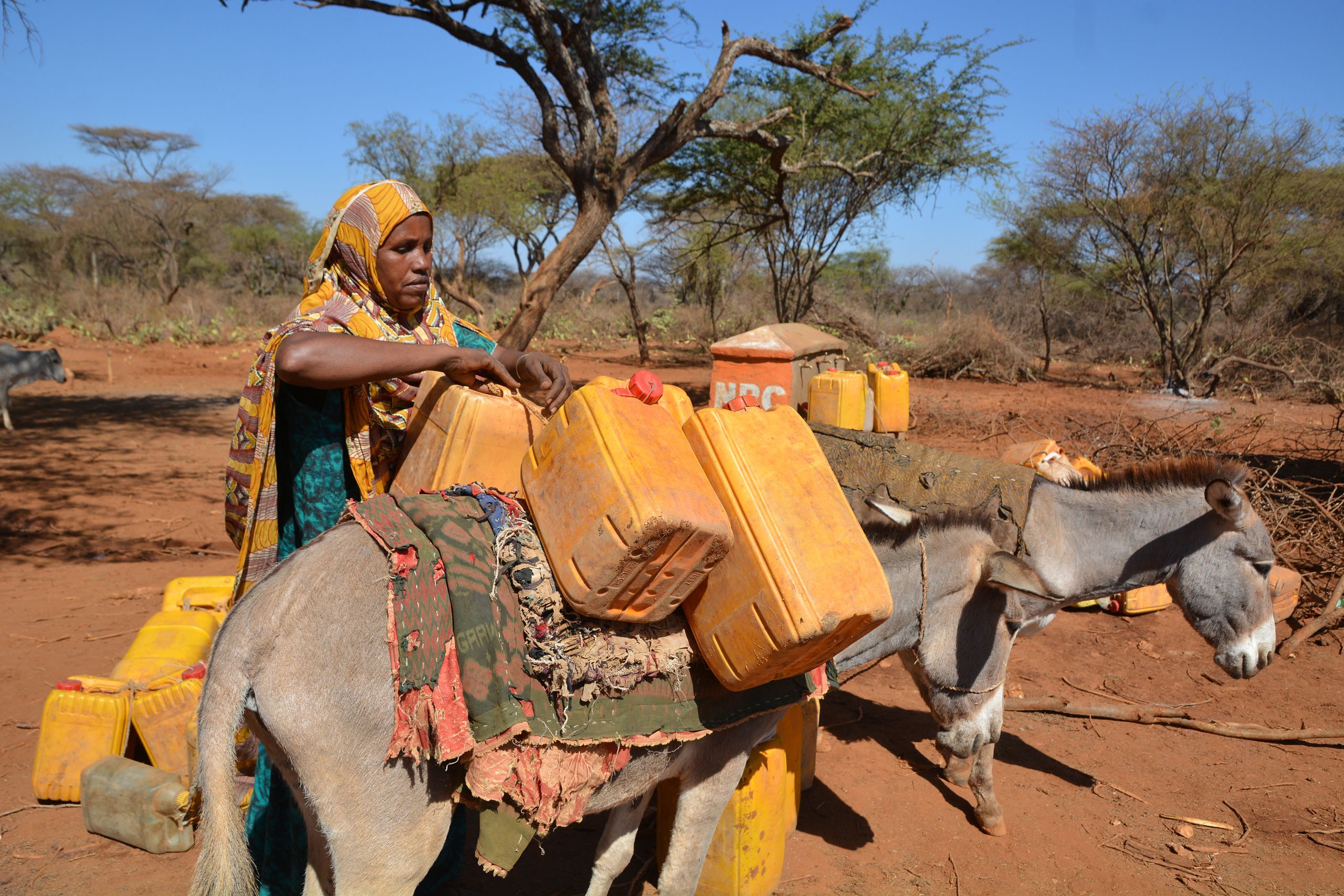
Message from the country director
What an incredible year it has been!
Covid-19 pandemic, locust infestation, floods, ethnic conflicts and finally a war in Tigray. Ethiopia has witnessed it all and these challenging times have tested the government’s capacity to cope with the growing needs, the people’s resilience to shocks, as well as challenged the humanitarian and development sector’s modus operandi. More than ever, in 2020, the sector has had to seriously reflect on its agility and flexibility to adapt to the context and rethink its business model, particularly with the realities of dwindling financial resources.
At the start of the year, the leadership team of Norwegian Refugee Council (NRC) in Ethiopia had a deep dive into our operations in the country, ways of working, strategies and partnerships that would allow us to reach more people, with more sustainable and impactful solutions. Our commitment for the year was to be self-critical and humble, listening to feedback from stakeholders and accordingly bringing in the requisite changes.
In 2020, we partnered with national and regional governments, corporate agencies including telecommunications companies, local media as well as national and local humanitarian partners, who supported us in scaling up program interventions and widening our reach as well as provided valuable feedback. Our work has moved from us managing the supply chain in totality to transferring processes to partners where they add value and expertise. We have also tailored our livelihood programming strategies to help boost local economies in the communities we work in. We believe that people should be empowered to take full control of their rights and entitlements. This is why our programming is based on evidence and research, which in turn allows us to influence policy decisions and programmatic designs. It is no more just about NUMBERS, but about IMPACT on the lives of people.
NRC Ethiopia 2020 Annual Report gives you a glimpse of our work, in one of the most challenging times in human history. I welcome all of you to peruse through our report and share any suggestions and feedback on how we can be better, in order to serve the people BETTER!
Happy reading!
Sumananjali Mohanty, Country Director

Sumananjali Mohanty, Country Director. Photo: Zia Hassan/NRC
Sumananjali Mohanty, Country Director. Photo: Zia Hassan/NRC

Sumananjali Mohanty, Country Director. Photo: Zia Hassan/NRC
Sumananjali Mohanty, Country Director. Photo: Zia Hassan/NRC
Message from the country director
What an incredible year it has been!
Covid-19 pandemic, locust infestation, floods, ethnic conflicts and finally a war in Tigray. Ethiopia has witnessed it all and these challenging times have tested the government’s capacity to cope with the growing needs, the people’s resilience to shocks, as well as challenged the humanitarian and development sector’s modus operandi. More than ever, in 2020, the sector has had to seriously reflect on its agility and flexibility to adapt to the context and rethink its business model, particularly with the realities of dwindling financial resources.
At the start of the year, the leadership team of Norwegian Refugee Council (NRC) in Ethiopia had a deep dive into our operations in the country, ways of working, strategies and partnerships that would allow us to reach more people, with more sustainable and impactful solutions. Our commitment for the year was to be self-critical and humble, listening to feedback from stakeholders and accordingly bringing in the requisite changes.
In 2020, we partnered with national and regional governments, corporate agencies including telecommunications companies, local media as well as national and local humanitarian partners, who supported us in scaling up program interventions and widening our reach as well as provided valuable feedback. Our work has moved from us managing the supply chain in totality to transferring processes to partners where they add value and expertise. We have also tailored our livelihood programming strategies to help boost local economies in the communities we work in. We believe that people should be empowered to take full control of their rights and entitlements. This is why our programming is based on evidence and research, which in turn allows us to influence policy decisions and programmatic designs. It is no more just about NUMBERS, but about IMPACT on the lives of people.
NRC Ethiopia 2020 Annual Report gives you a glimpse of our work, in one of the most challenging times in human history. I welcome all of you to peruse through our report and share any suggestions and feedback on how we can be better, in order to serve the people BETTER!
Happy reading!
Sumananjali Mohanty, Country Director
Our reach in 2020
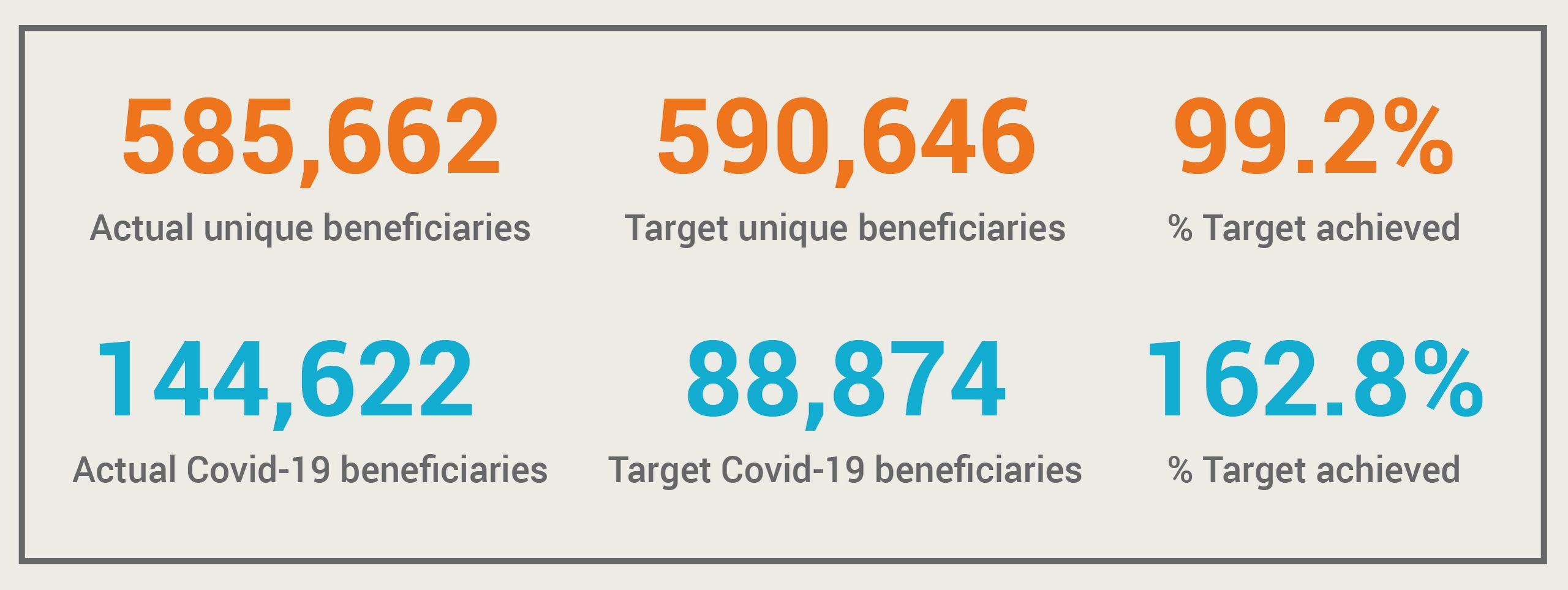
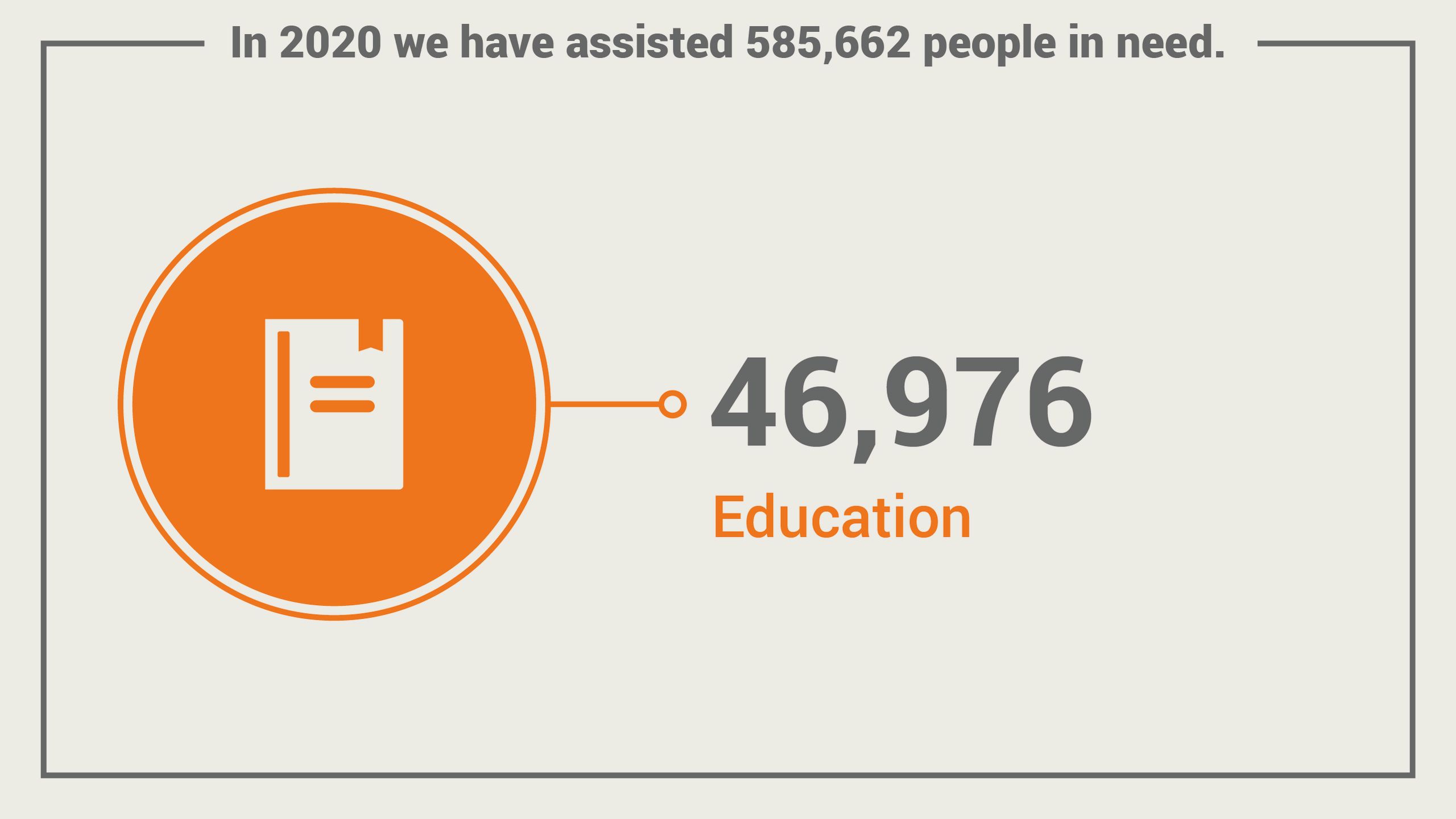
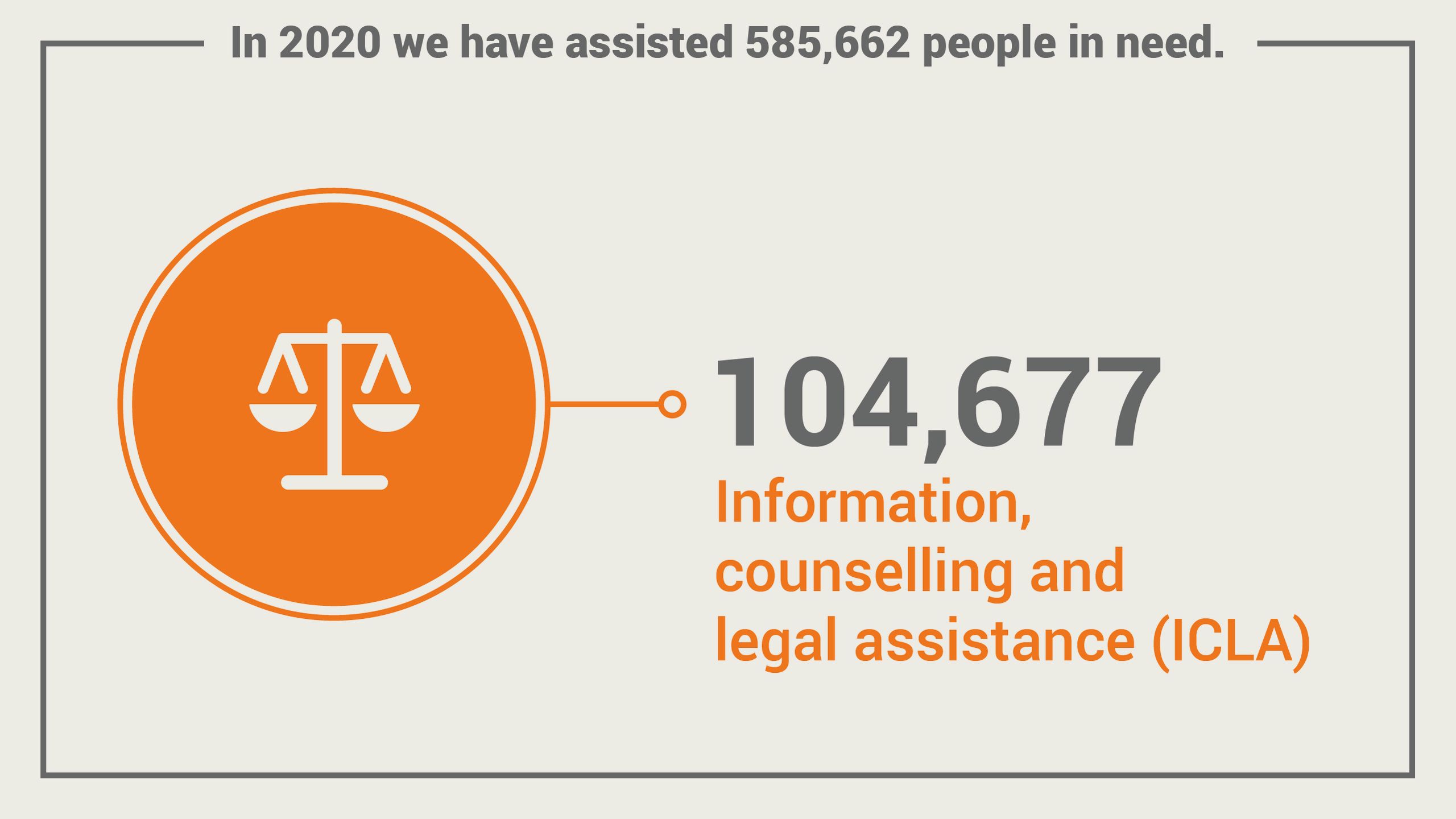
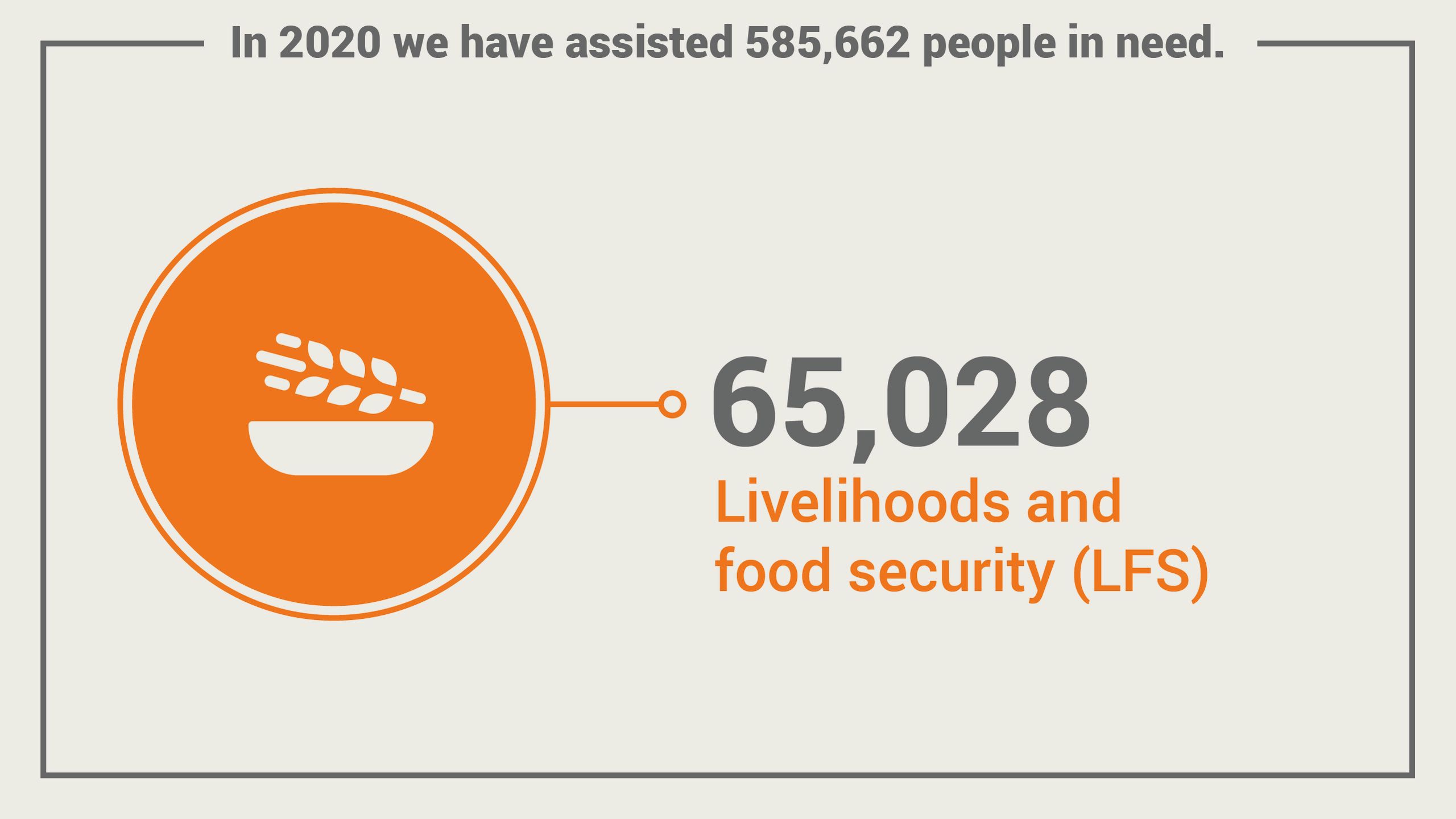
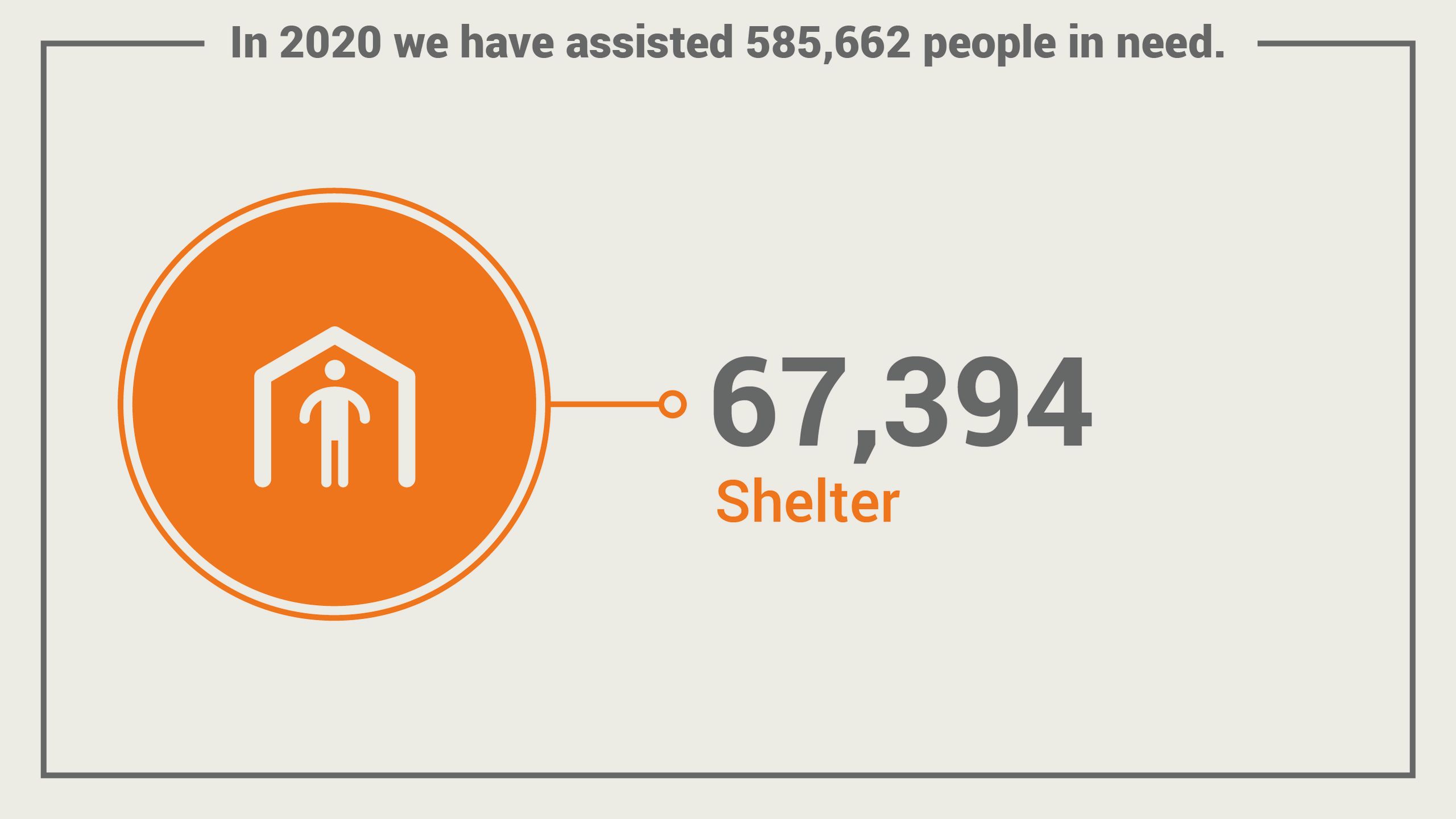
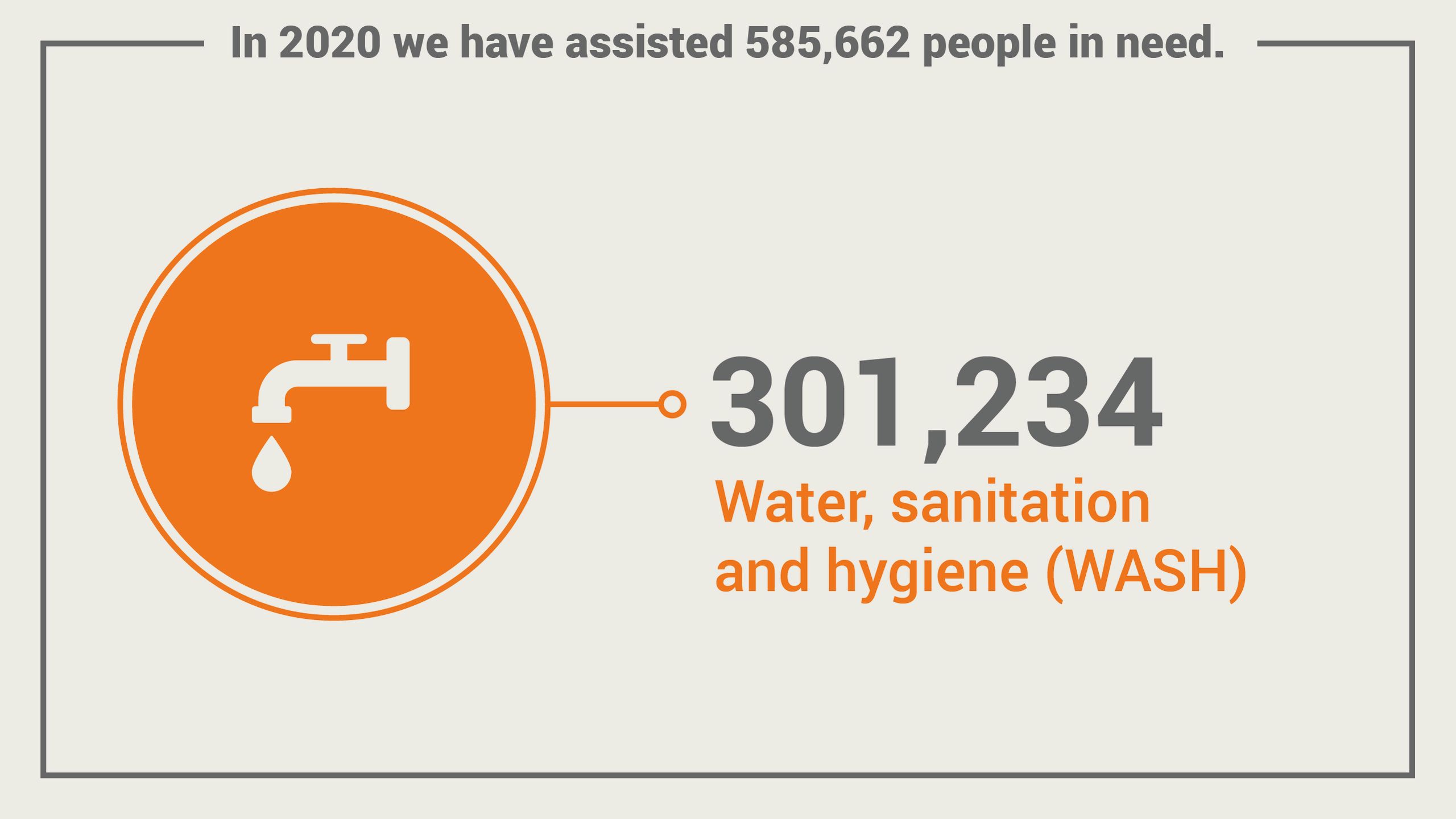
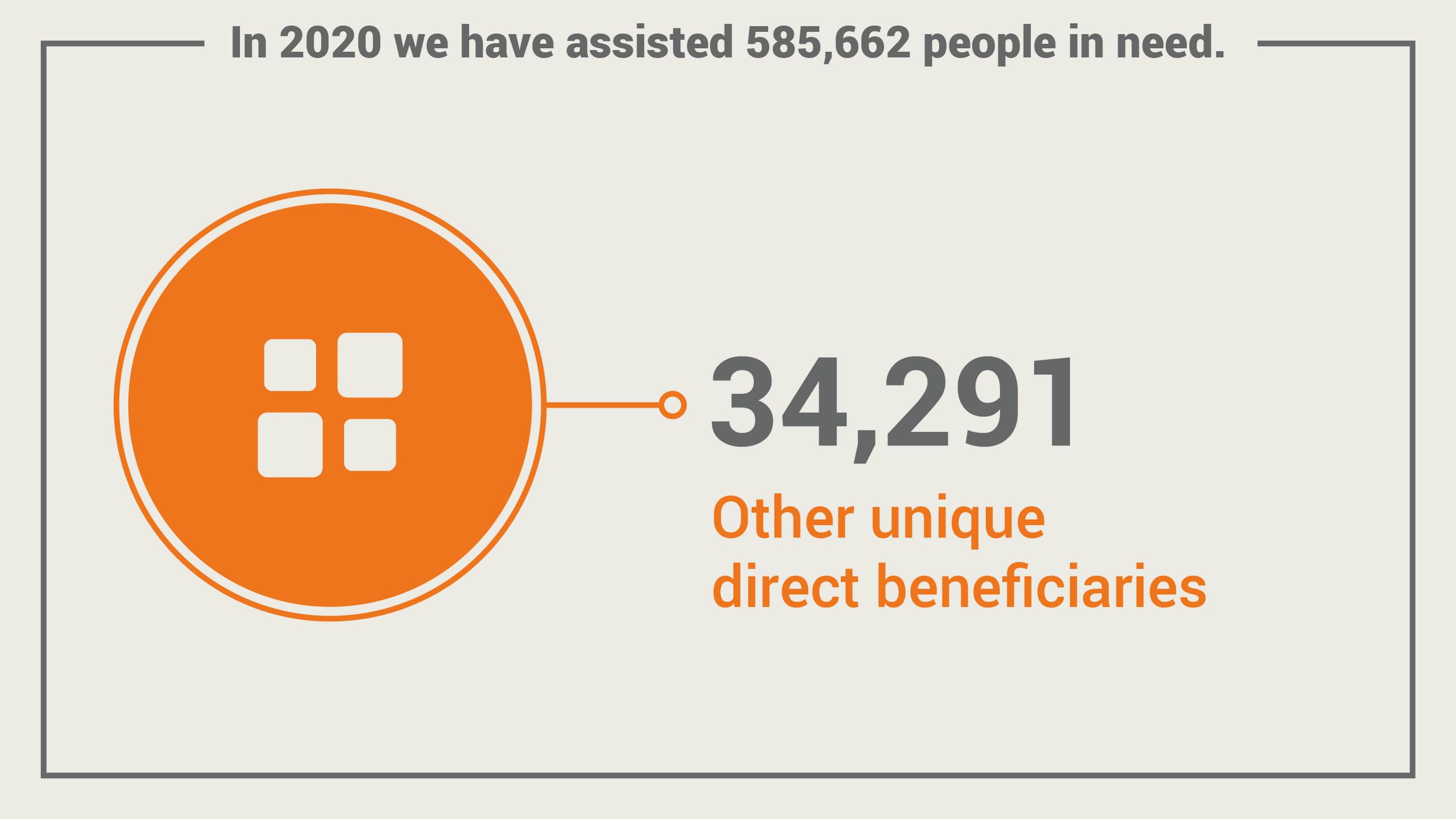
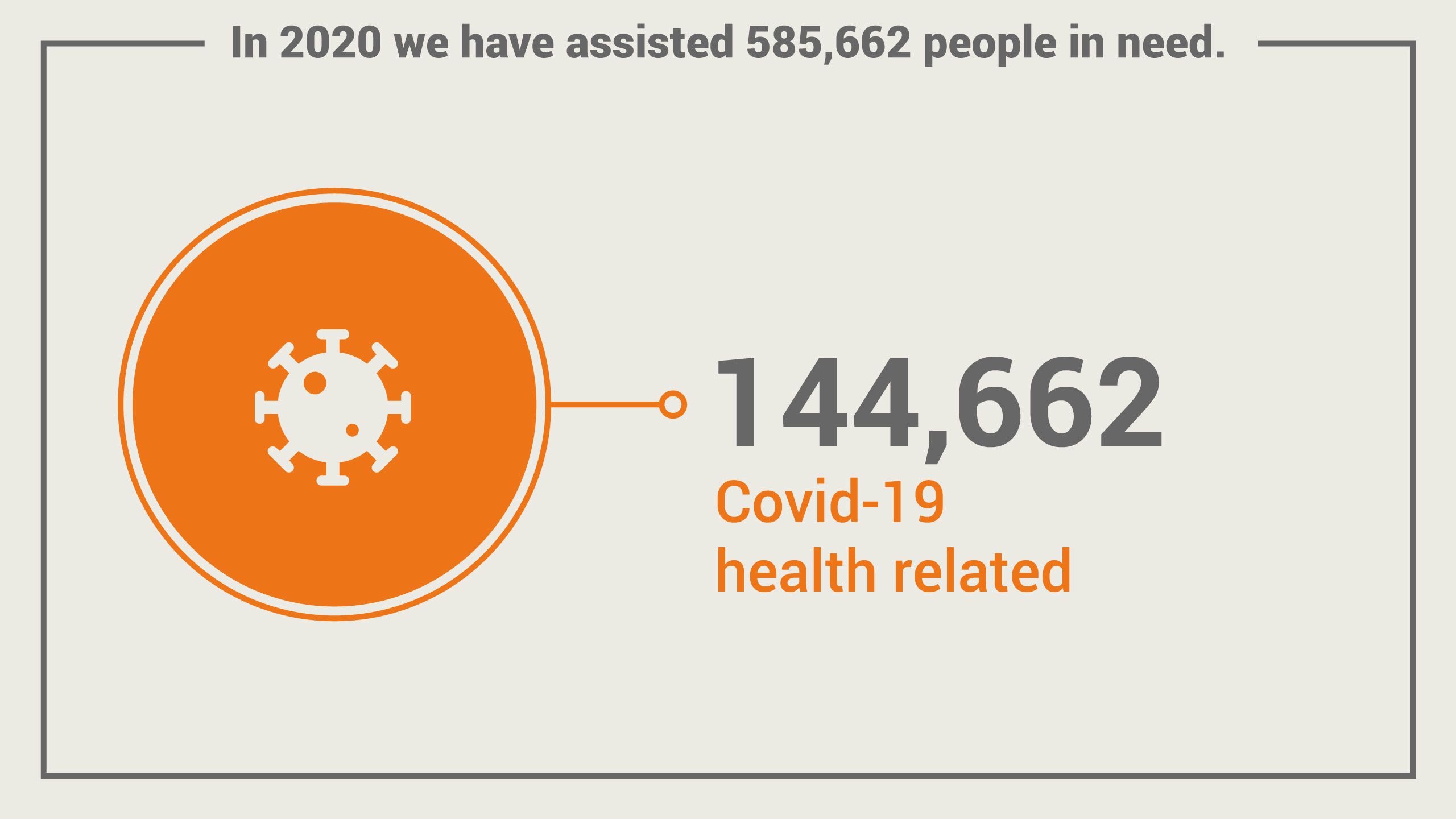
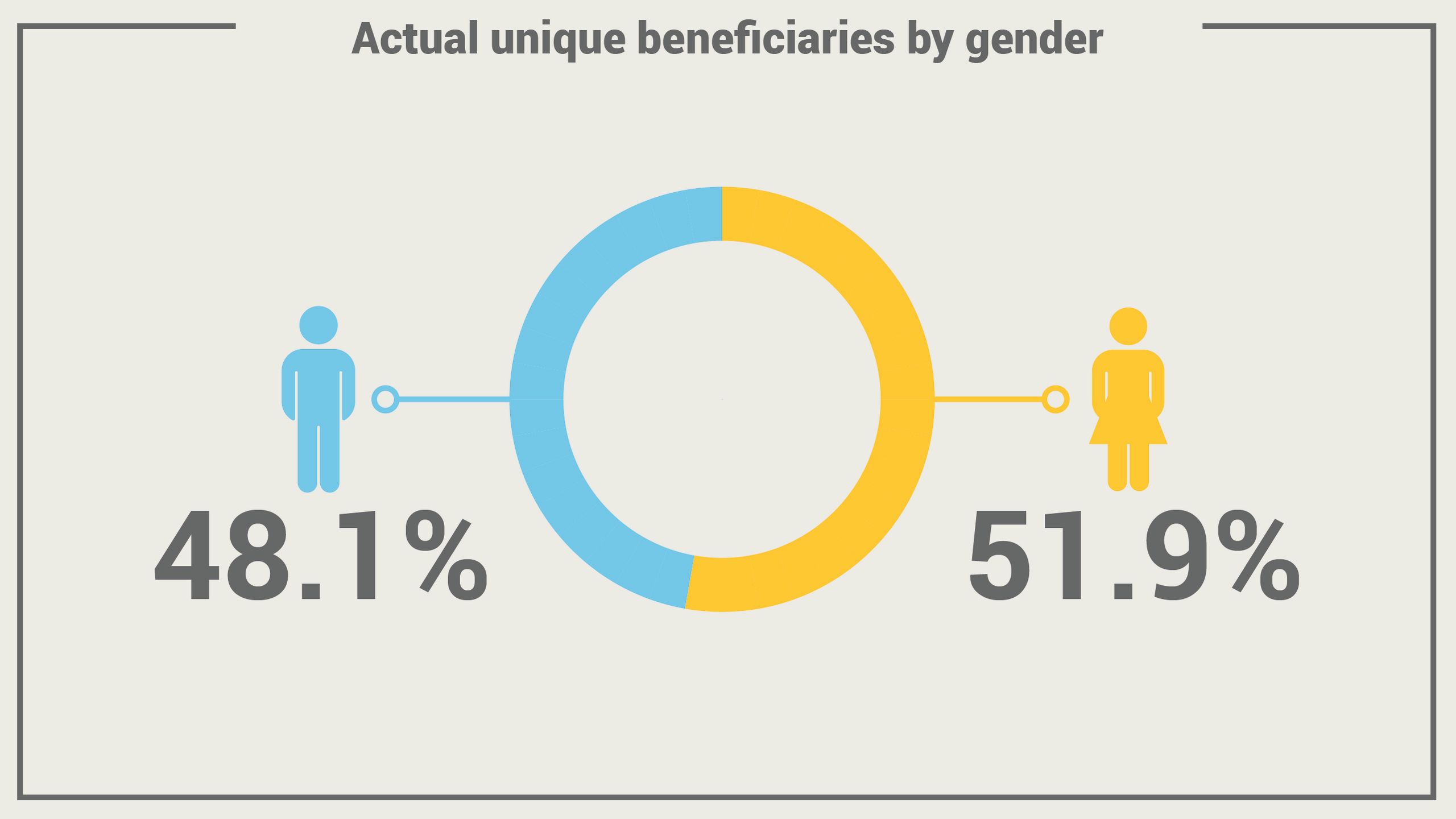
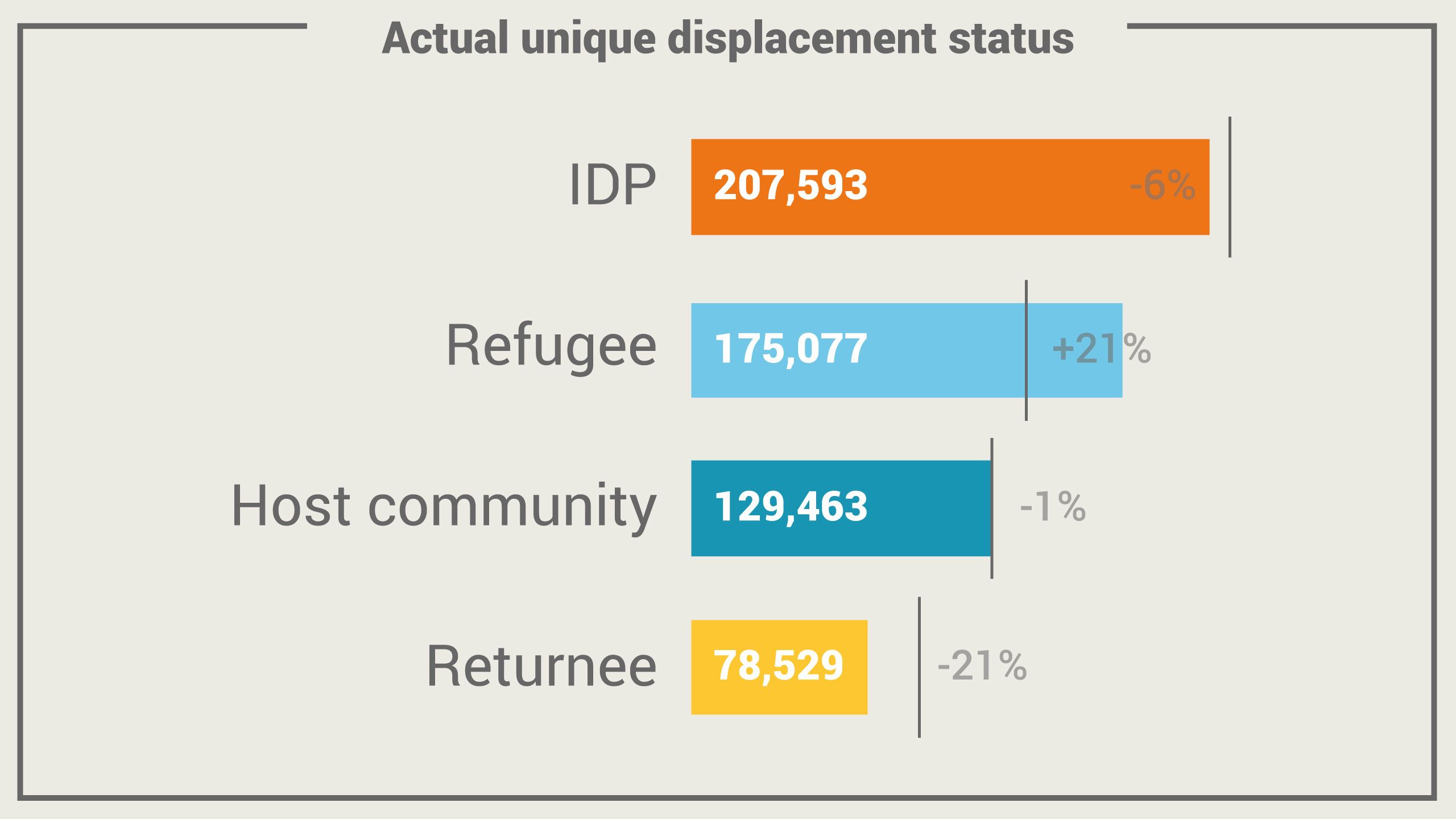
Our vision
People vulnerable to or affected by conflict or displacement (human induced/natural disasters), living in Ethiopia, are empowered and have the capabilities to pursue durable solutions to their life and livelihood.
Where we work
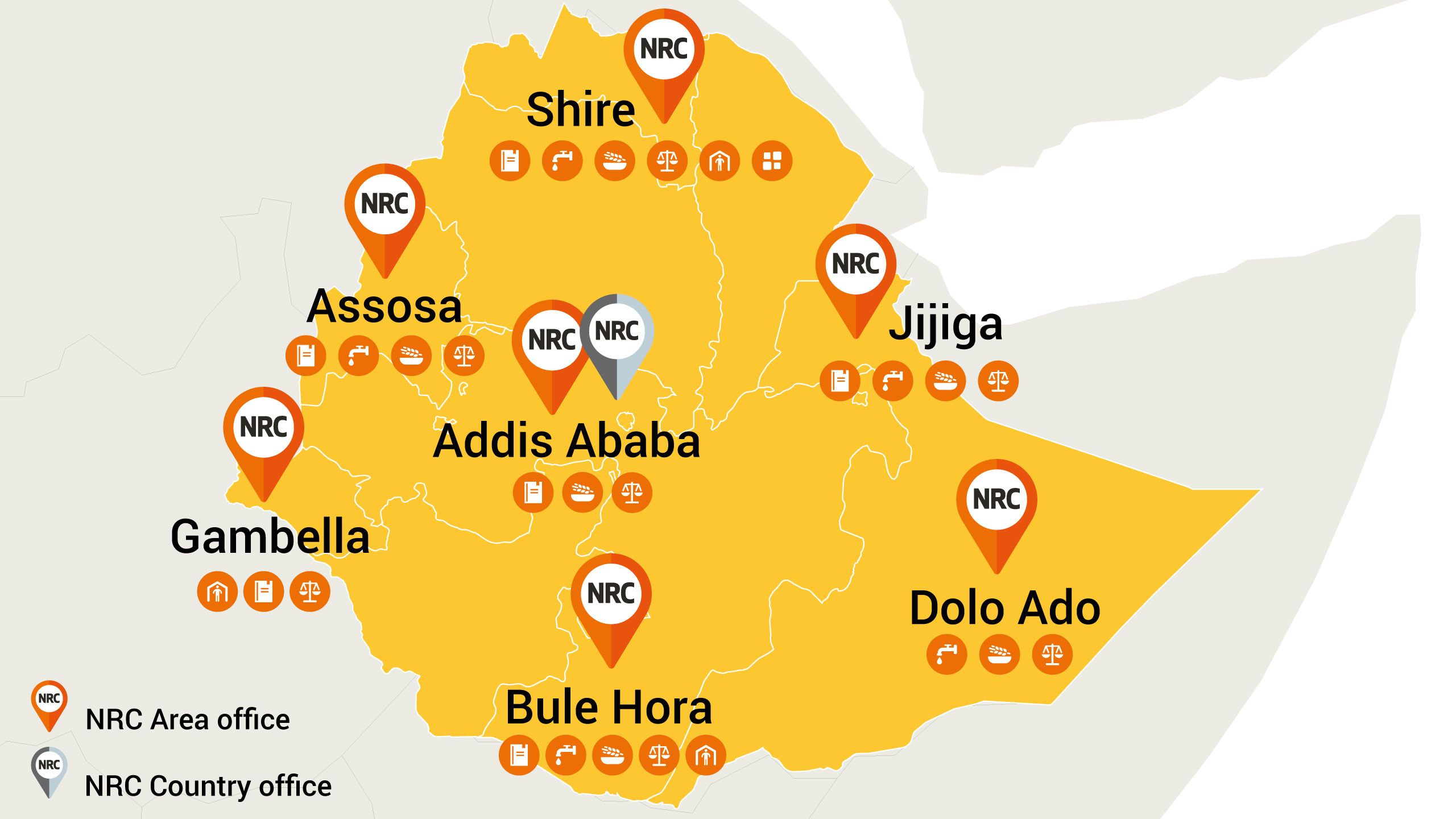
Our ambition
Be the leading displacement organisation in hard-to-reach areas
Be a champion for durable solutions
Become a leader in using data and technology to deliver better
Be a great organisation to work for
Be the leading displacement organisation in hard-to-reach areas
Reaching the unreachable through community engagement
63,601 people Gelana woreda of West Guji Zone, Oromia Region were displaced from their homes due to heavy rains that also destroyed social infrastructure and properties. Seven highly affected kebeles were inaccessible due to floods. Due to poor road conditions, transporting water, sanitation and hygiene (WASH) items was delayed for three days, meaning that affected families were without assistance. To overcome the difficulties, NRC’s WASH team supported by the kebele Chairman Ato Oda Elema, mobilized the community members of Hitu kebele to help construct an alternative road.
As a result, a 220 meters’ road was constructed and eased access to the hardly hit kebeles.
The Post Distribution Monitoring exercise conducted a month later revealed that in addition to the WASH NFIs received from NRC, the community appreciated the additional support in building the road, which has made access and transportation for the community members, much more possible, particularly during health emergencies.
Being the first to respond in hard to reach areas: the case of NRC Assosa operation
The conflict in Benishangul Gumuz region, where we also have an ongoing refugee programme, displaced more than 120,000 people in October 2018. Unidentified armed groups targeting different ethnic minorities made it difficult to reach displacement affected communities living in areas with poor infrastructure in terms of road access and communication. Despite this, NRC immediately responded to the crisis through provision of lifesaving assistance. Partnering with Red Cross Society Ethiopia, a local organisation working in the area, NRC was the first organisation to distribute lifesaving assistance such as emergency shelter and non-food items. Working with Red Cross Society helped to reach vulnerable people as we maintained our humanitarian principles, regardless of existing gatekeeping challenges.
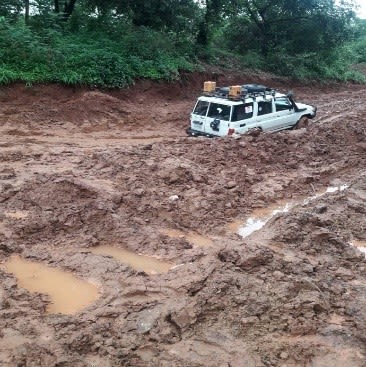
Photo: NRC Ethiopia
Photo: NRC Ethiopia
As the conflict persisted causing more displacement, NRC opened two additional satellite offices in Kamashi and Metekel zones, minimizing unsafe frequent movement of our staff and mitigating access constraints, such as during rainy seasons or attacks from unidentified armed groups which further delay the delivery of assistance. In doing so, we continue achieving our goals of reaching vulnerable people in hard to reach areas, even in the events other NGOs were withdrawn from the areas.
65-year old Kumele Jirata was married at her early adolescent years. She lives in Kamashi with her 20-year old son and is the family’s only bread winner. Before a hand dug well was made available by NRC with funding support from OCHA, she used to travel for more than two hours to fetch water. Many times she had to make repeated trips to fetch enough water for her family’s needs. Moreover, she had to wait in long ques to get the water. In addition to protection risks while traveling to and back from the water source, passing through the jungles, she frequently complained shoulder aches owing to heavy water jars that she had to carry. Kumele, said, ‘Gamechudha’ (feeling happy) in her local language appreciating the hand dug well that NRC constructed. The well is also near her house, so Kumele does not have to walk long distances in search of water and has enough supply for all her needs as well as those of her neighbors. She also has more time to spend on other household chores. Moreover, she said that having access to a clean and safe water made them free from recurrent water borne diseases. This story represents those of 260,000 others that have been similarly supported through NRC WASH project in the region.
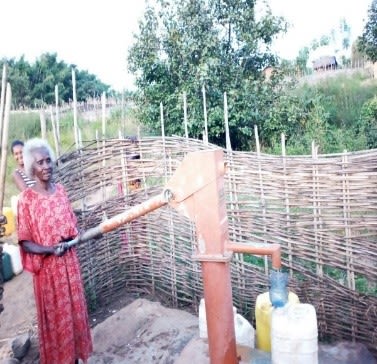
Photo: Yenealem Reta/NRC
Photo: Yenealem Reta/NRC
NRC’s principle-based assistance has been recognised by government authorities as well as donors. As a result, we have secured more funding that is helping us achieve our ambitions of being a leader in hard-to-reach areas and champion in durable solutions. Our main response is focussed on providing emergency shelter, WASH, education, food security and legal assistance.
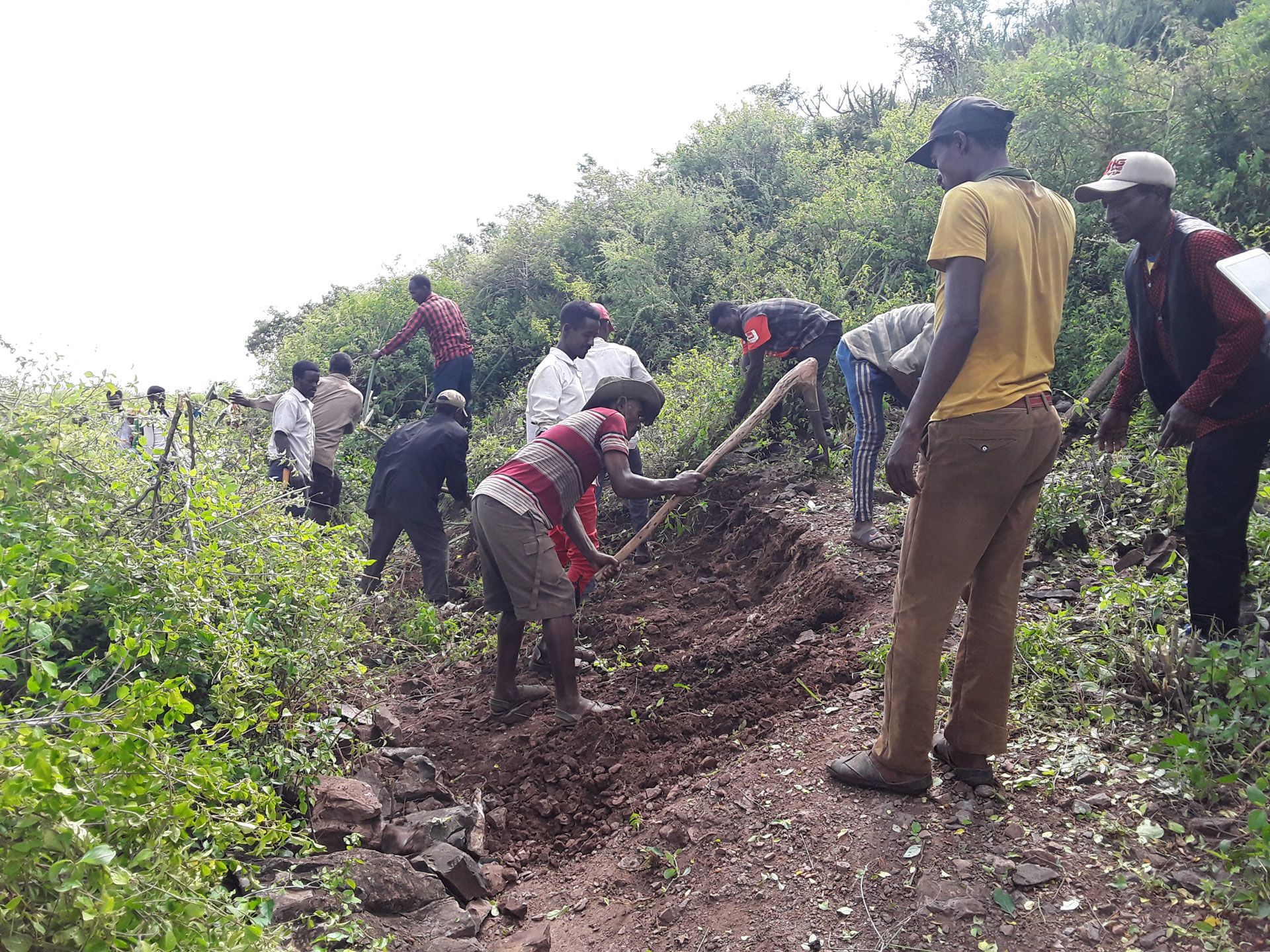
Community engagement in constructing the alternative road. Photo: NRC Ethiopia
Community engagement in constructing the alternative road. Photo: NRC Ethiopia
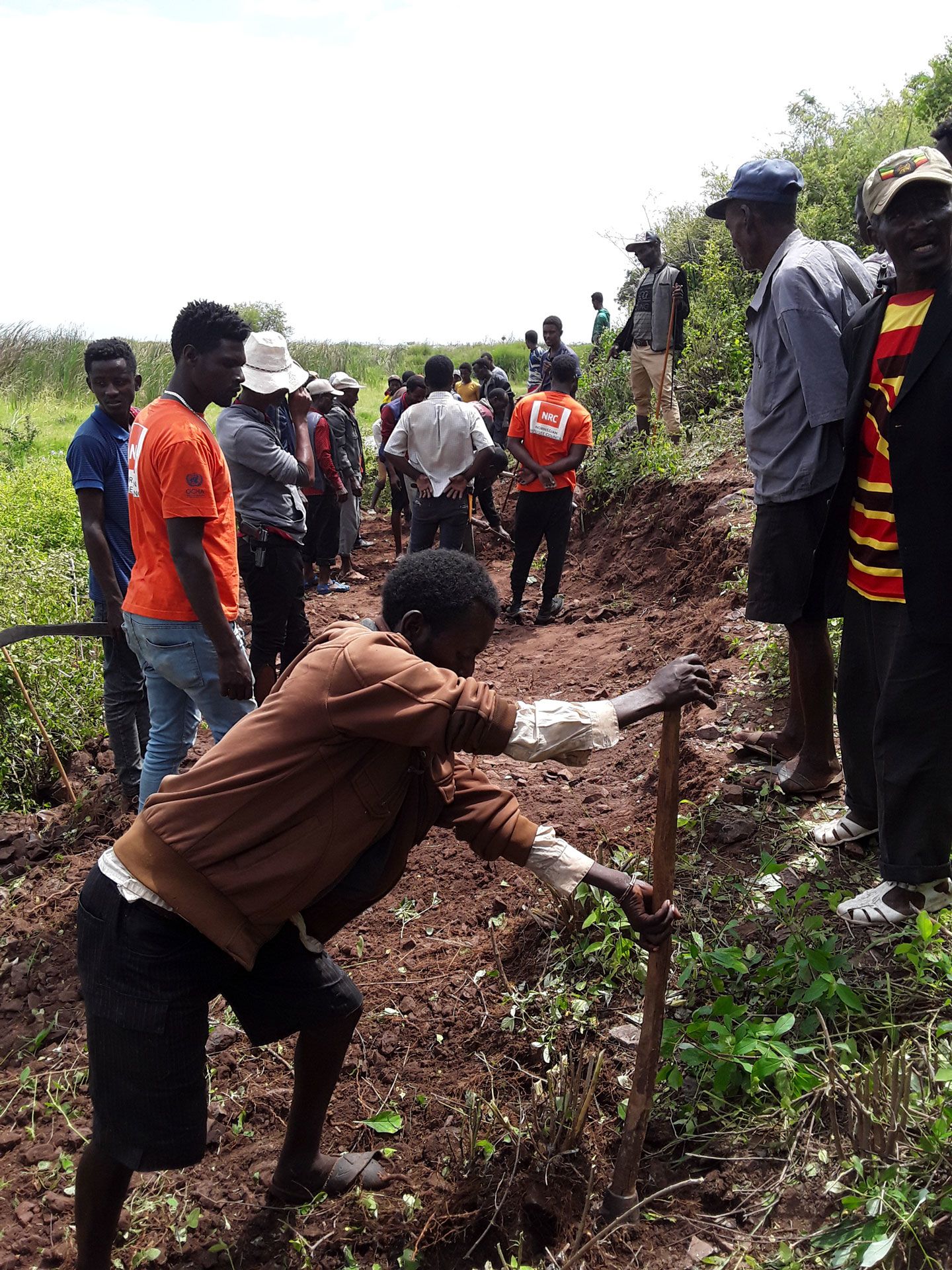
Community members from Gelana woreda of West Guji Zone in Oromia Region, work together to construct a new road after serious floods destroyed all others in the area. Photo: NRC Ethiopia
Community members from Gelana woreda of West Guji Zone in Oromia Region, work together to construct a new road after serious floods destroyed all others in the area. Photo: NRC Ethiopia
Be the leading displacement organisation in hard-to-reach areas
Reaching the unreachable through community engagement
63,601 people Gelana woreda of West Guji Zone, Oromia Region were displaced from their homes due to heavy rains that also destroyed social infrastructure and properties. Seven highly affected kebeles were inaccessible due to floods. Due to poor road conditions, transporting water, sanitation and hygiene (WASH) items was delayed for three days, meaning that affected families were without assistance. To overcome the difficulties, NRC’s WASH team supported by the kebele Chairman Ato Oda Elema, mobilized the community members of Hitu kebele to help construct an alternative road.

Community engagement in constructing the alternative road. Photo: NRC Ethiopia
Community engagement in constructing the alternative road. Photo: NRC Ethiopia
As a result, a 220 meters’ road was constructed and eased access to the hardly hit kebeles.
The Post Distribution Monitoring exercise conducted a month later revealed that in addition to the WASH NFIs received from NRC, the community appreciated the additional support in building the road, which has made access and transportation for the community members, much more possible, particularly during health emergencies.
Being the first to respond in hard to reach areas: the case of NRC Assosa operation
The conflict in Benishangul Gumuz region, where we also have an ongoing refugee programme, displaced more than 120,000 people in October 2018. Unidentified armed groups targeting different ethnic minorities made it difficult to reach displacement affected communities living in areas with poor infrastructure in terms of road access and communication. Despite this, NRC immediately responded to the crisis through provision of lifesaving assistance. Partnering with Red Cross Society Ethiopia, a local organisation working in the area, NRC was the first organisation to distribute lifesaving assistance such as emergency shelter and non-food items. Working with Red Cross Society helped to reach vulnerable people as we maintained our humanitarian principles, regardless of existing gatekeeping challenges.

Photo: NRC Ethiopia
Photo: NRC Ethiopia
As the conflict persisted causing more displacement, NRC opened two additional satellite offices in Kamashi and Metekel zones, minimizing unsafe frequent movement of our staff and mitigating access constraints, such as during rainy seasons or attacks from unidentified armed groups which further delay the delivery of assistance. In doing so, we continue achieving our goals of reaching vulnerable people in hard to reach areas, even in the events other NGOs were withdrawn from the areas.

Community members from Gelana woreda of West Guji Zone in Oromia Region, work together to construct a new road after serious floods destroyed all others in the area. Photo: NRC Ethiopia
Community members from Gelana woreda of West Guji Zone in Oromia Region, work together to construct a new road after serious floods destroyed all others in the area. Photo: NRC Ethiopia
65-year old Kumele Jirata was married at her early adolescent years. She lives in Kamashi with her 20-year old son and is the family’s only bread winner. Before a hand dug well was made available by NRC with funding support from OCHA, she used to travel for more than two hours to fetch water. Many times she had to make repeated trips to fetch enough water for her family’s needs. Moreover, she had to wait in long ques to get the water. In addition to protection risks while traveling to and back from the water source, passing through the jungles, she frequently complained shoulder aches owing to heavy water jars that she had to carry. Kumele, said, ‘Gamechudha’ (feeling happy) in her local language appreciating the hand dug well that NRC constructed. The well is also near her house, so Kumele does not have to walk long distances in search of water and has enough supply for all her needs as well as those of her neighbors. She also has more time to spend on other household chores. Moreover, she said that having access to a clean and safe water made them free from recurrent water borne diseases. This story represents those of 260,000 others that have been similarly supported through NRC WASH project in the region.

Photo: Yenealem Reta/NRC
Photo: Yenealem Reta/NRC
NRC’s principle-based assistance has been recognised by government authorities as well as donors. As a result, we have secured more funding that is helping us achieve our ambitions of being a leader in hard-to-reach areas and champion in durable solutions. Our main response is focussed on providing emergency shelter, WASH, education, food security and legal assistance.
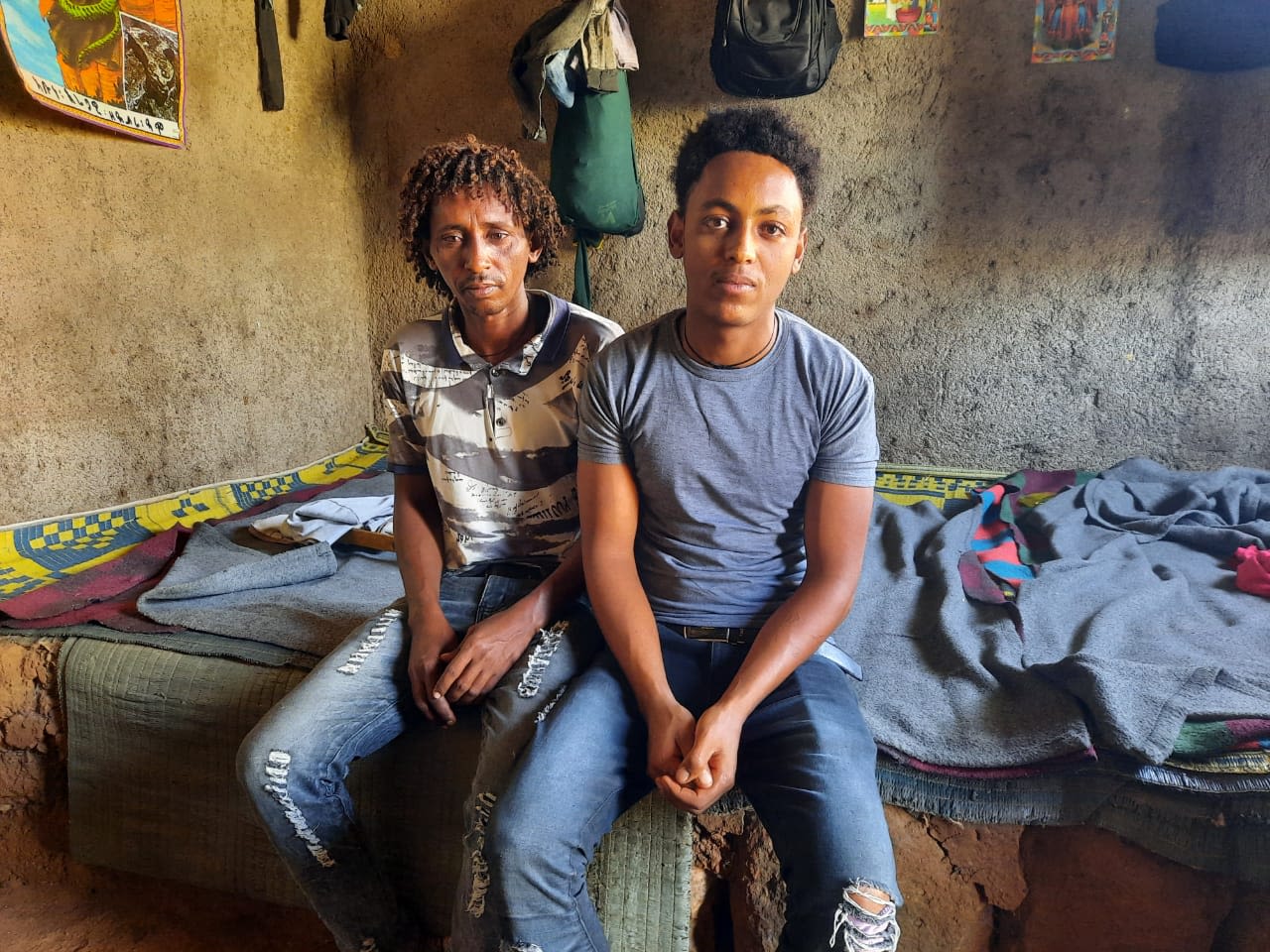
Daniel Tebay, 15, with his foster father (in striped shirt) at their home in Shire refugee camp, Tigray region. He aspires to be a doctor when he finishes his education. Photo: Daud Hirmoge/NRC
Daniel Tebay, 15, with his foster father (in striped shirt) at their home in Shire refugee camp, Tigray region. He aspires to be a doctor when he finishes his education. Photo: Daud Hirmoge/NRC
Be a champion for durable solutions
Paradigm shift in child protection programming
In partnership with UNHCR, NRC has been implementing a child protection program for unaccompanied and separated children refugees from Eritrea living in Shire Refugee Camps in Tigray Region. One of our intervention activities was focused on community care arrangement where a group of children live together and are provided with wet food cooked in communal kitchens. Provision of wet food for children involves procurement of essential food items and perishable goods and cooking them in communal kitchens powered with fuel generators, an approach which is neither market friendly nor environmentally sound.
In 2020 and in consultation with the children, NRC adopted a new approach to provide more durable solutions for these children by placing them under foster and kinship care. Families who could be care givers for these children were identified and in turn, NRC provided cash support to help them in their care activities. More than 2,500 children have so far been placed in foster families. Integrating children within foster families has an immense impact on their emotional security and also provides a pathway for durable solutions. This approach also promotes local markets and protects the environment. Further, NRC has worked to influence other stakeholders like UNHCR, ARRA, Refugee Central Committee to adopt to the new modality.
The change in programmatic design also makes NRC more efficient in our operations and human resource needs.
Be a champion for durable solutions
Paradigm shift in child protection programming
In partnership with UNHCR, NRC has been implementing a child protection program for unaccompanied and separated children refugees from Eritrea living in Shire Refugee Camps in Tigray Region. One of our intervention activities was focused on community care arrangement where a group of children live together and are provided with wet food cooked in communal kitchens. Provision of wet food for children involves procurement of essential food items and perishable goods and cooking them in communal kitchens powered with fuel generators, an approach which is neither market friendly nor environmentally sound.

Daniel Tebay, 15, with his foster father (in striped shirt) at their home in Shire refugee camp, Tigray region. He aspires to be a doctor when he finishes his education. Photo: Daud Hirmoge/NRC
Daniel Tebay, 15, with his foster father (in striped shirt) at their home in Shire refugee camp, Tigray region. He aspires to be a doctor when he finishes his education. Photo: Daud Hirmoge/NRC
In 2020 and in consultation with the children, NRC adopted a new approach to provide more durable solutions for these children by placing them under foster and kinship care. Families who could be care givers for these children were identified and in turn, NRC provided cash support to help them in their care activities. More than 2,500 children have so far been placed in foster families. Integrating children within foster families has an immense impact on their emotional security and also provides a pathway for durable solutions. This approach also promotes local markets and protects the environment. Further, NRC has worked to influence other stakeholders like UNHCR, ARRA, Refugee Central Committee to adopt to the new modality.
The change in programmatic design also makes NRC more efficient in our operations and human resource needs.
The story of conflict displaced returnee, Tilahun Workine Abijew
Tilahaun Workine Abijew, 30, is among returnees living in Metekel zone of Benishangul Gumuz region, Mandura woreda at Edida kebele. Tilahun, together with his six family members who were farmers, fled their village during the conflict that also destroyed all their livelihood opportunities including farming input as seeds and tools. After a year living in a settlement for internally displaced people, he came back home together with his family and back to his agricultural activities.
NRC supported Tilahun and his family by providing cash assistance that enabled him to replenish his farming inputs. With the cash, he bought crop seeds, a heifer to begin restocking and weed killer for his crops. All that this family is striving to do is improve their food security and rebuild their livelihoods.
Story of hope for my children
"My name is Aberash Gezagn Shuberi, 40 years old a mother of seven growing children, four boys and three girls. We live in a small village called Dararo kebele in Yirgachefe woreda, Gedeo zone SNNPR. Life is very difficult for my family. My children have suffered from severe malnutrition and we find it hard to send them to school because our meager income is not even enough to buy food. We plant crops the whole year but because of recurring conflict our farming activity is affected. The negative effect of Climate change is also an added burden."
“One day NRC staff came to our village and organized a meeting. I attended the first meeting hoping that there will be distribution of food packs. but there were no food packs distributed. Instead they asked us to discuss issues affecting the farmers and identify solutions on how to solve our own problems. My husband was doubtful at the beginning and discouraged me from participating. “Let us just work harder so we have something to eat. Meeting without eating is nothing!” he said.”
The following week NRC team returned, this time to see our farm. After visiting the farm and discussing on what to do next, the NRC selected a few of the community members, including myself, to participate in a farmers’ training program being implemented in our village. I finished the training on goat production and management, seedling preparation and vegetable production. After the training I received two types of improved seeds of wheat and blok. I also received tools like shovel, pick axe, and sickle. I purchased two goats from the Conditional Cash assistance provided by NRC.
Our village is in a remote area about 35 kilometers from Bule Hora town. NRC is the only organisation providing assistance in our village. I am happy that I participated in the training; my crops are growing well and I am expecting a good harvest of 6-8 quintals of wheat and blok planted in my farm 0.5 hectares. But, the big bonus goes to my children. I learned to plant vegetables that my children can eat every day. We don’t have to wait until the harvest season to have enough food to eat. I am excited to support and see my children going to school.”
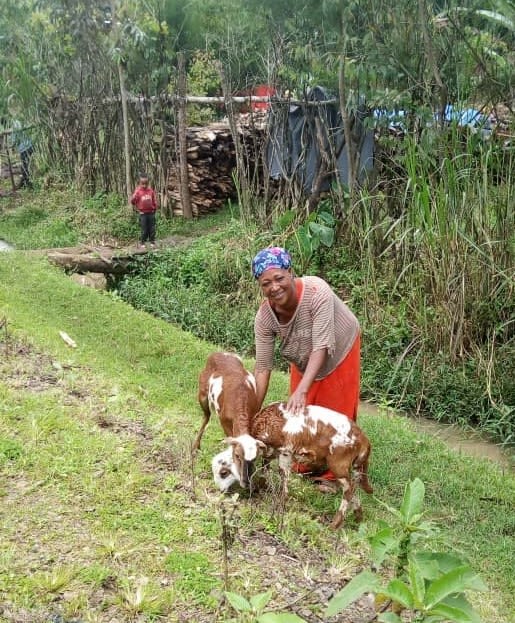
Aberash Gezagn Shuberi, FSL beneficiary from Dararo Kebele. Photo: Urji Balay/NRC
Aberash Gezagn Shuberi, FSL beneficiary from Dararo Kebele. Photo: Urji Balay/NRC
Story of hope for my children
"My name is Aberash Gezagn Shuberi, 40 years old a mother of seven growing children, four boys and three girls. We live in a small village called Dararo kebele in Yirgachefe woreda, Gedeo zone SNNPR. Life is very difficult for my family. My children have suffered from severe malnutrition and we find it hard to send them to school because our meager income is not even enough to buy food. We plant crops the whole year but because of recurring conflict our farming activity is affected. The negative effect of Climate change is also an added burden."

Aberash Gezagn Shuberi, FSL beneficiary from Dararo Kebele. Photo: Urji Balay/NRC
Aberash Gezagn Shuberi, FSL beneficiary from Dararo Kebele. Photo: Urji Balay/NRC
“One day NRC staff came to our village and organized a meeting. I attended the first meeting hoping that there will be distribution of food packs. but there were no food packs distributed. Instead they asked us to discuss issues affecting the farmers and identify solutions on how to solve our own problems. My husband was doubtful at the beginning and discouraged me from participating. “Let us just work harder so we have something to eat. Meeting without eating is nothing!” he said.”
The following week NRC team returned, this time to see our farm. After visiting the farm and discussing on what to do next, the NRC selected a few of the community members, including myself, to participate in a farmers’ training program being implemented in our village. I finished the training on goat production and management, seedling preparation and vegetable production. After the training I received two types of improved seeds of wheat and blok. I also received tools like shovel, pick axe, and sickle. I purchased two goats from the Conditional Cash assistance provided by NRC.
Our village is in a remote area about 35 kilometers from Bule Hora town. NRC is the only organisation providing assistance in our village. I am happy that I participated in the training; my crops are growing well and I am expecting a good harvest of 6-8 quintals of wheat and blok planted in my farm 0.5 hectares. But, the big bonus goes to my children. I learned to plant vegetables that my children can eat every day. We don’t have to wait until the harvest season to have enough food to eat. I am excited to support and see my children going to school.”

Solar panels erected by NRC in Qoloji IDP camp in Jijiga. Photo: Sumananjali Mohanty/NRC
Solar panels erected by NRC in Qoloji IDP camp in Jijiga. Photo: Sumananjali Mohanty/NRC
Community contribution towards sustainable access to water
In 2020, NRC successfully upgraded seven water supply systems to hydrbid systems across Ethiopia. One by Asossa AO in Kemashi zone (Benishangul Gumuz region), one by Bule hora AO in West Guji zone (Oromia), one by Dollo Ado AO in Liben zone (Somali) and four by Jigjiga AO in Sitti zone (Somali). The systems not only contributed to improving access to clean water but also to reducing the carbon footprint in line with NRC’s Greening the Orange global initiative. The systems were also crucial in mitigation and prevention of Covid-19 by ensuring water availability for handwashing, when there were lockdowns and movement restrictions affecting suply chains of diesel.
The projects resonate with our global ambitions of responding in hard to reach areas and providing durable solutions.
For instance, two of the four sites in Sitti zone; Sisalu and Afcase Kebeles are between 250 and 300km away from the Somali region capital city, Jigjiga and where the NRC Area Office is located. Poor road conditions makes these areas hard to reach during the dry season taking approximately seven hours drive one way, even worse during the rainy season. In addition, their proximity to the conflict-prone border with Afar and Oromia regions, means that there is limited presence of humanitarian actors despte incidences of insecurity having led to the displacement of the communities. This vulnerability fit into NRCs’ targeting criteria and thus selected for WASH interventions. With funding from Ethiopia Humanitarian Fund (EHF), managed by UN OCHA, NRC upgraded the existing boreholes to hybrid coupled with, trained WASH committees on operation and maintenance, and implemented sanitation and hygiene promotion activities.
In both locations, the cost of diesel is approximately 800 ETB (25$) per 20L jerrican due to the remoteness of the sites, which often takes days before reaching the nearest town. The scarcity caused water stress in the communities and forcing people to trekk many kilometres in search of water, sometimes from unsafe sources. As per interviews with the communities, the installation of the solar-powered system has alleviated all these. The fuel savings will be channelled towards the operation and maintenance of the pipeline system and water points. In Sisalu, the committee provided for water for free to the communities for a month as an appreciation of the solar system which had no recurrent cost. During handover, the WASH committees were equipped with equipment and on-job training on the operation of the systems as well as some knowledge on book-keeping and financial management. Although additional efforts are required to improve transparency and accountability, the community mobilised their resources to put up a fence around the solar modules installation site. The fence made using combination of local materials and barbed/chainlink wire has prevented unauthorised access by animals, children as the high voltage produced by the solar modules can be catastrophic. This action is an excellent initiative by the communities showing their commitment without any external support and shows a great sense of ownership. It’s approximated, the communities spent 120,000 ETB ($3,750) for the fencing and not from water sales.
Community contribution towards sustainable access to water
In 2020, NRC successfully upgraded seven water supply systems to hydrbid systems across Ethiopia. 1 by Asossa AO in Kemashi zone (Benishangul Gumuz region), one by Bule hora AO in West Guji zone ( Oromia), one by Dollo Ado AO in Liben zone (Somali) and four by Jigjiga AO in Sitti zone ( Somali). The systems not only contributed to improving access to clean water but also to reducing the carbon footprint in line with NRC’s Greening the Orange global initiative. The systems were also crucial in mitigation and prevention of Covid-19 by ensuring water availability for handwashing, when there were lockdowns and movement restrictions affecting suply chains of diesel.

Solar panels erected by NRC in Qoloji IDP camp in Jijiga. Photo: Sumananjali Mohanty/NRC
Solar panels erected by NRC in Qoloji IDP camp in Jijiga. Photo: Sumananjali Mohanty/NRC
The projects resonate with our global ambitions of responding in hard to reach areas and providing durable solutions.
For instance, two of the four sites in Sitti zone; Sisalu and Afcase Kebeles are between 250 and 300km away from the Somali region capital city, Jigjiga and where the NRC Area Office is located. Poor road conditions makes these areas hard to reach during the dry season taking approximately seven hours drive one way, even worse during the rainy season. In addition, their proximity to the conflict-prone border with Afar and Oromia regions, means that there is limited presence of humanitarian actors despte incidences of insecurity having led to the displacement of the communities. This vulnerability fit into NRCs’ targeting criteria and thus selected for WASH interventions. With funding from Ethiopia Humanitarian Fund (EHF), managed by UN OCHA, NRC upgraded the existing boreholes to hybrid coupled with, trained WASH committees on operation and maintenance, and implemented sanitation and hygiene promotion activities.
In both locations, the cost of diesel is approximately 800 ETB (25$) per 20L jerrican due to the remoteness of the sites, which often takes days before reaching the nearest town. The scarcity caused water stress in the communities and forcing people to trekk many kilometres in search of water, sometimes from unsafe sources. As per interviews with the communities, the installation of the solar-powered system has alleviated all these. The fuel savings will be channelled towards the operation and maintenance of the pipeline system and water points. In Sisalu, the committee provided for water for free to the communities for a month as an appreciation of the solar system which had no recurrent cost. During handover, the WASH committees were equipped with equipment and on-job training on the operation of the systems as well as some knowledge on book-keeping and financial management. Although additional efforts are required to improve transparency and accountability, the community mobilised their resources to put up a fence around the solar modules installation site. The fence made using combination of local materials and barbed/chainlink wire has prevented unauthorised access by animals, children as the high voltage produced by the solar modules can be catastrophic. This action is an excellent initiative by the communities showing their commitment without any external support and shows a great sense of ownership. It’s approximated, the communities spent 120,000 ETB ($3,750) for the fencing and not from water sales.
From hopeless to purposeful: A refugee mobile phone mechanic aspiring to become a computer engineer.
In 2014, Mamuch Douth Makuach, 27, fled from his home in South Sudan’s Upper Nile region, walking for several days with his pregnant wife and young baby seeking refuge in Ethiopia. He has since been living in Kule refugee camp in Gambella. “It was a long, painful and hopeless journey for me. I did not know where I was going. All I wanted was safety for my family. I never imagined that I would one day be a refugee,” said Mamuch.
For him, living in a refugee camp was a disempowering situation. It was about living one day at a time, one meal at a time with no certainty about the future.
In 2019, NRC Gambella through its Youth Education and Training (YET) programme funded by the Norwegian Ministry of Foreign Affairs (NMFA) mobilized young people in Kule, Tierkidi and Jewi refugee camps to participate in various vocational skills training. Mamuch enrolled for the four-months Electronics and Mobile Maintenance course and after successfully completing and graduating from the programme, he received startup kits and capital that helped him establish his own business. Mamuch now earns enough to cover his business and family expenses. NRC Gambella plans to provide a small petrol powered generator so that he can save on the huge costs currently borne in electricity costs. His new skills have boosted his confidence to study Computer Engineering. “I am optimistic that one day, my dream of becoming a Computer Engineer will come to pass,” he said.” There are many young people like Mamuch in the refugee camps and host communities of Gambella region that NRC will continue to support with vocational skills training and livelihoods interventions to improve their self-sufficiency.
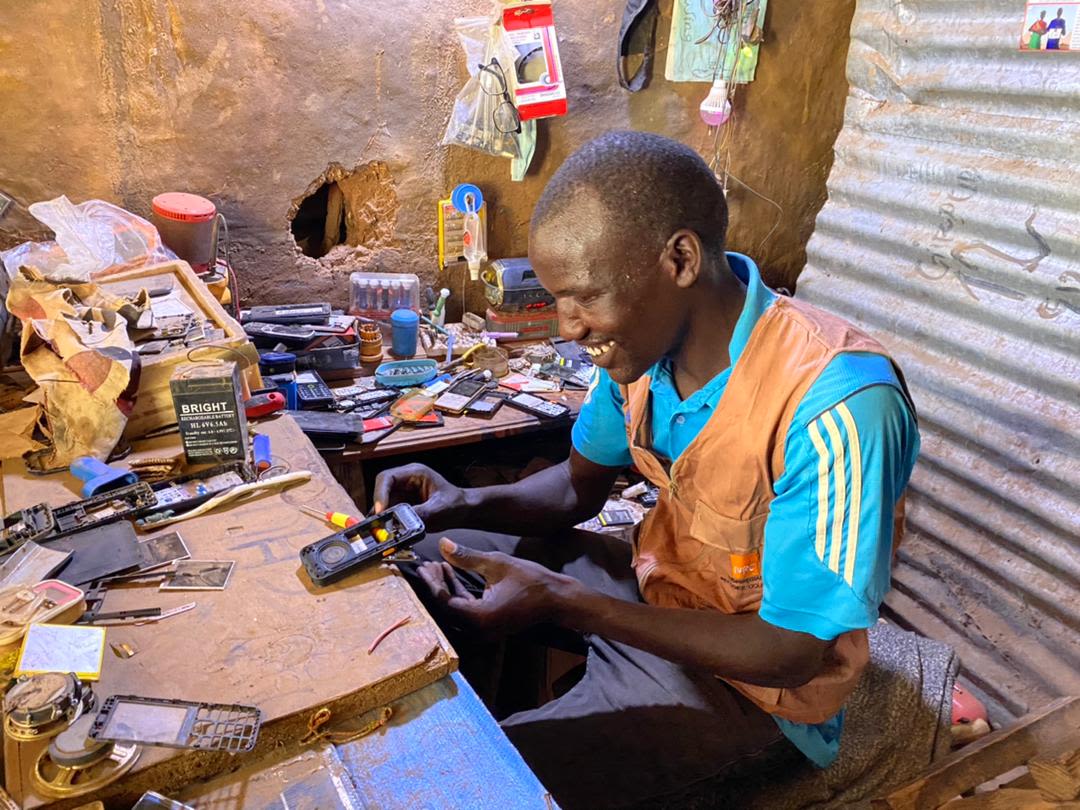
Mamuch in his mobile phone maintenance shop at Kule refugee camp, Gambella. Photo: Jieng Nhial/NRC
Mamuch in his mobile phone maintenance shop at Kule refugee camp, Gambella. Photo: Jieng Nhial/NRC
From hopeless to purposeful: A refugee mobile phone mechanic aspiring to become a computer engineer.
In 2014, Mamuch Douth Makuach, 27, fled from his home in South Sudan’s Upper Nile region, walking for several days with his pregnant wife and young baby seeking refuge in Ethiopia. He has since been living in Kule refugee camp in Gambella. “It was a long, painful and hopeless journey for me. I did not know where I was going. All I wanted was safety for my family. I never imagined that I would one day be a refugee,” said Mamuch.

Mamuch in his mobile phone maintenance shop at Kule refugee camp, Gambella. Photo: Jieng Nhial/NRC
Mamuch in his mobile phone maintenance shop at Kule refugee camp, Gambella. Photo: Jieng Nhial/NRC
For him, living in a refugee camp was a disempowering situation. It was about living one day at a time, one meal at a time with no certainty about the future.
In 2019, NRC Gambella through its Youth Education and Training (YET) programme funded by the Norwegian Ministry of Foreign Affairs (NMFA) mobilized young people in Kule, Tierkidi and Jewi refugee camps to participate in various vocational skills training. Mamuch enrolled for the four-months Electronics and Mobile Maintenance course and after successfully completing and graduating from the programme, he received startup kits and capital that helped him establish his own business. Mamuch now earns enough to cover his business and family expenses. NRC Gambella plans to provide a small petrol powered generator so that he can save on the huge costs currently borne in electricity costs. His new skills have boosted his confidence to study Computer Engineering. “I am optimistic that one day, my dream of becoming a Computer Engineer will come to pass,” he said.” There are many young people like Mamuch in the refugee camps and host communities of Gambella region that NRC will continue to support with vocational skills training and livelihoods interventions to improve their self-sufficiency.
Become a leader in using data and technology to deliver better
Digital literacy becomes a reality in Shire refugee camps.
The majority of Eritrean refugee youth in Shire, Tigray region, are unable to access formal education limiting their ability to acquire life and employable skills to earn an income. The situation has been worsened with the closure of all learning institutions across the country due to the Covid‑19 pandemic.
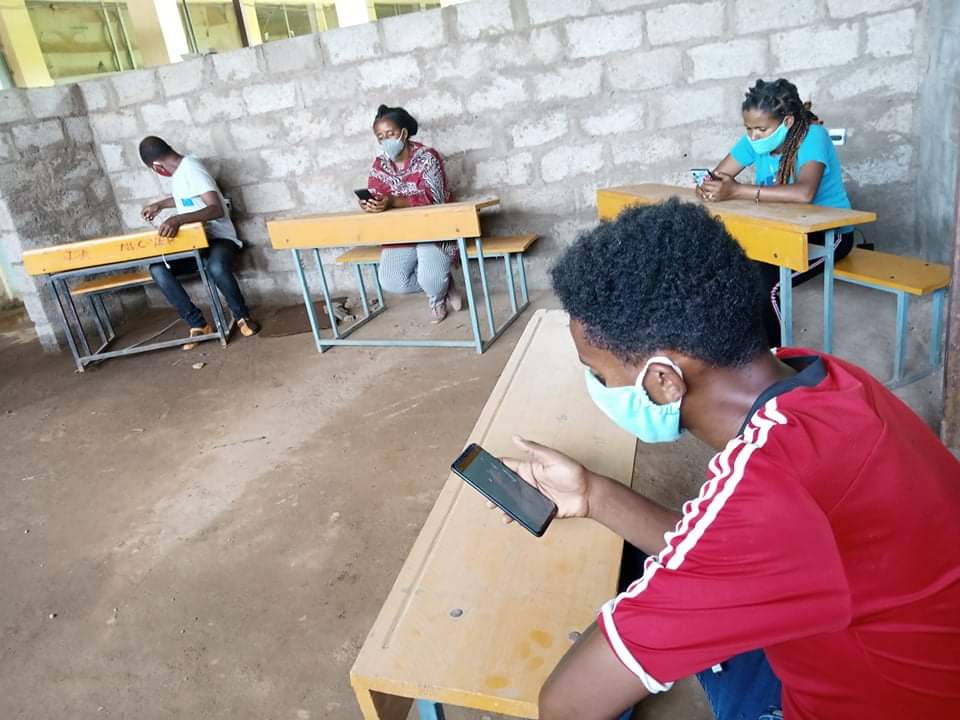
Part of the youth enrolled in NRC’s Youth Empowerment Park as well as the Digital Literacy Project in Shire. Photo: NRC Ethiopia
Part of the youth enrolled in NRC’s Youth Empowerment Park as well as the Digital Literacy Project in Shire. Photo: NRC Ethiopia
Youth Education and Training is one of NRC’s strategic response area in the Education Core Competency while Education Technology is one of the programmatic modalities that underpins NRC’s global strategic initiatives, program development and ambitions.
In partnership with Microsoft, NRC provides digital literacy for youth in Shire refugee camps in Tigray region. 230 youth in Adharush and Mai Ayni refugee camps and the host community, a third of whom are female, learnt through a digital learning platform which gives them practical application of knowledge and skills relevant to their context. Microsoft provided generic content which the youth trainers used to build additional content that is relevant to their context and aligned with the Ethiopian curriculum. The learning also covers internet literacy as well as online safety - something that is not a focus in our traditional IT classes. The training is delivered remotely through self-paced blended learning approach, equipping several youth with the digital skills they need to transition to employment and become a part of the digital economy.
Education brought closer to home
Nyanduit, lost her husband to the civil war in South Sudan and had to flee to Ethiopia together with her five children in 2014. Now, this family is dependent on one of their relative to survive. Before the Covid-19 pandemic, her children used to go to Goro primary school which is situated in Addis Ababa but have since stopped owing to school closures.
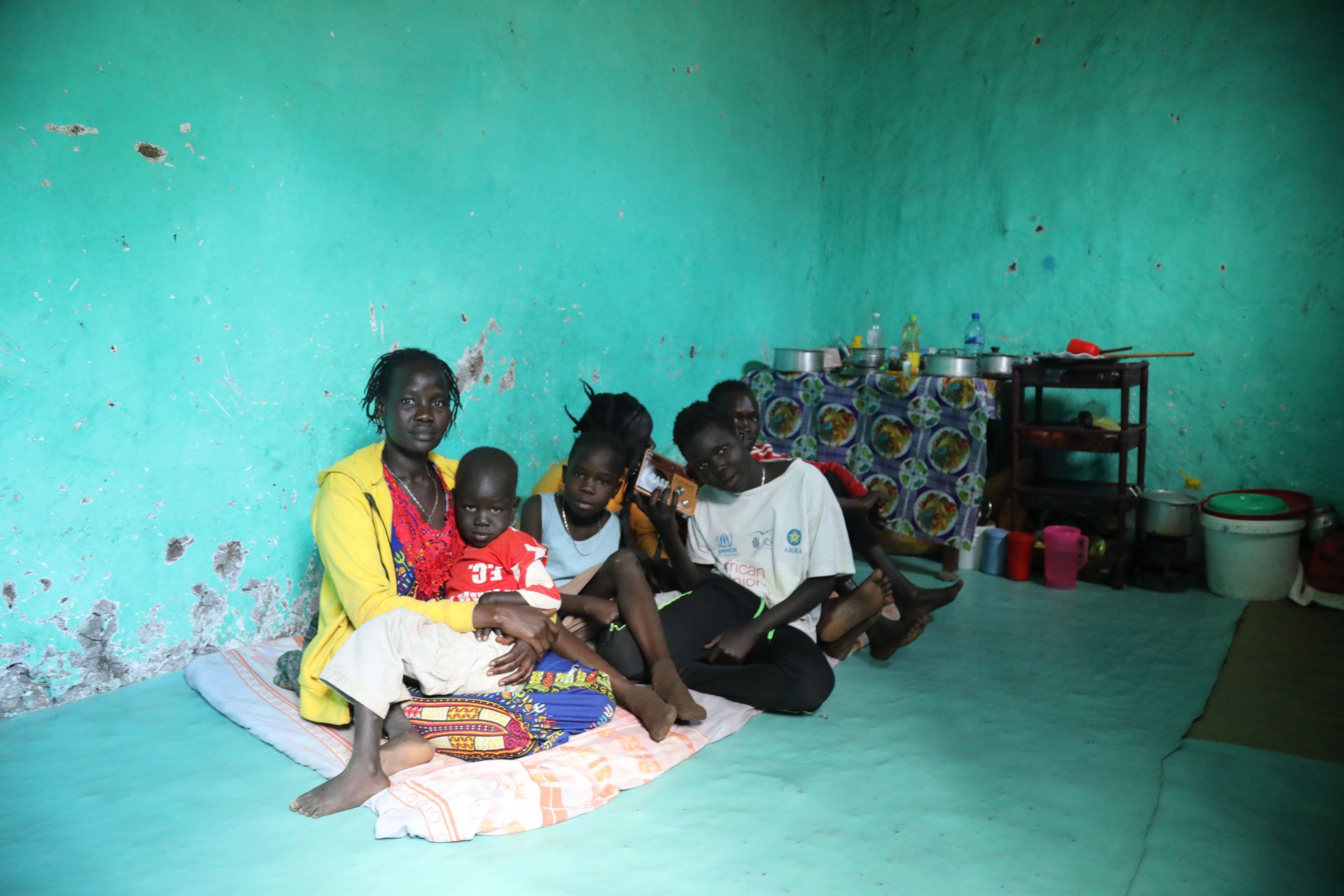
Photo: Hiwot Endrias/NRC
Photo: Hiwot Endrias/NRC
“I thought education is confined to classrooms”
Thanks to NRC, all the school going children in the family are able to listen to the radio education which is broadcasted by Addis Ababa Education Bureau. His siblings also benefit from the same program and still have time to help their mother with chores. Funded by Swiss, NMFA and ARC, 5,884 refugee and host community primary school students who have been affected by school closures have received solar and electric powered radio as well as 16 GB USB comprising educational content to help them continue their education.
Development of SMS and hotline system
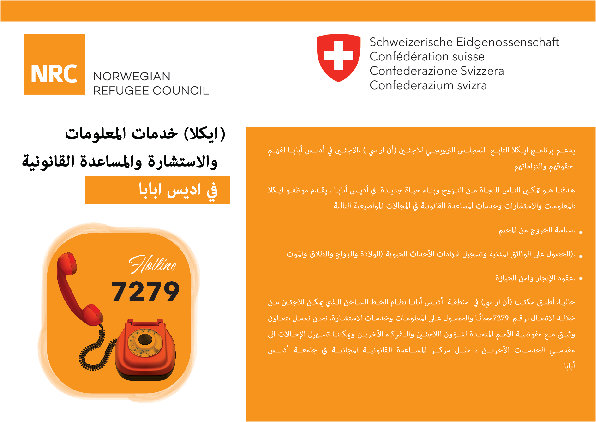
“Previously our community was constantly loaded with a different kind of information, which was difficult to follow because of its unreliability. Through the hotline number, we are able to disseminate information to our community more reliably. Using the hotline is free of charge and the community is able to get reliable information in just one phone call.”
Rays of hope to refugees and host communities as water supply goes green
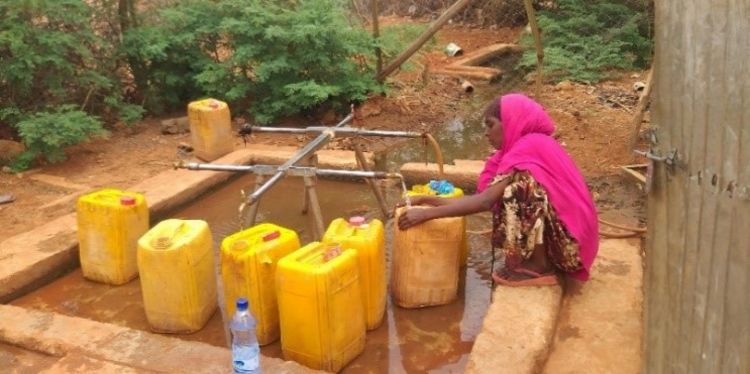
Photo: NRC Ethiopia
Photo: NRC Ethiopia
“I remember one day I had to stay at the water point the whole day without attending to my business. In the end, I returned home that evening carrying only one 5 litre jerry can of water for a family of 5 waiting. You can imagine how painful that was. But thanks to NRC everything has improved in terms of accessibility, safety and water pressure.”
Heloweyne refugee camp hosts approximately 35,247[1] each accessing estimated 22 litres of water daily. The water source being four shallow wells drilled along Genale river. Until when NRC installed the water systems, diesel generators of different capacities powered the system. Use of diesel presented numerous challenges; due to remoteness of the camp and poor road network, the sites experienced diesel shortages, leading to rationing of water to the refugees. In addition, frequent breakdown of generators, the inconsistent cost of fuel and increment of consumption by the generators due to age and operating many hours to meet the demand. The shallow wells had also reduced their production capacity to almost 50% due to accumulation of silt in the wells. As a result, refugees risked being infected by water borne diseases. Host community members in Lugal Kebele also had to walk almost four kilometers to the nearest water point located in the camp in order to access water. Owing to competition for the limited resource, tensions between the refugees and host community members increased.
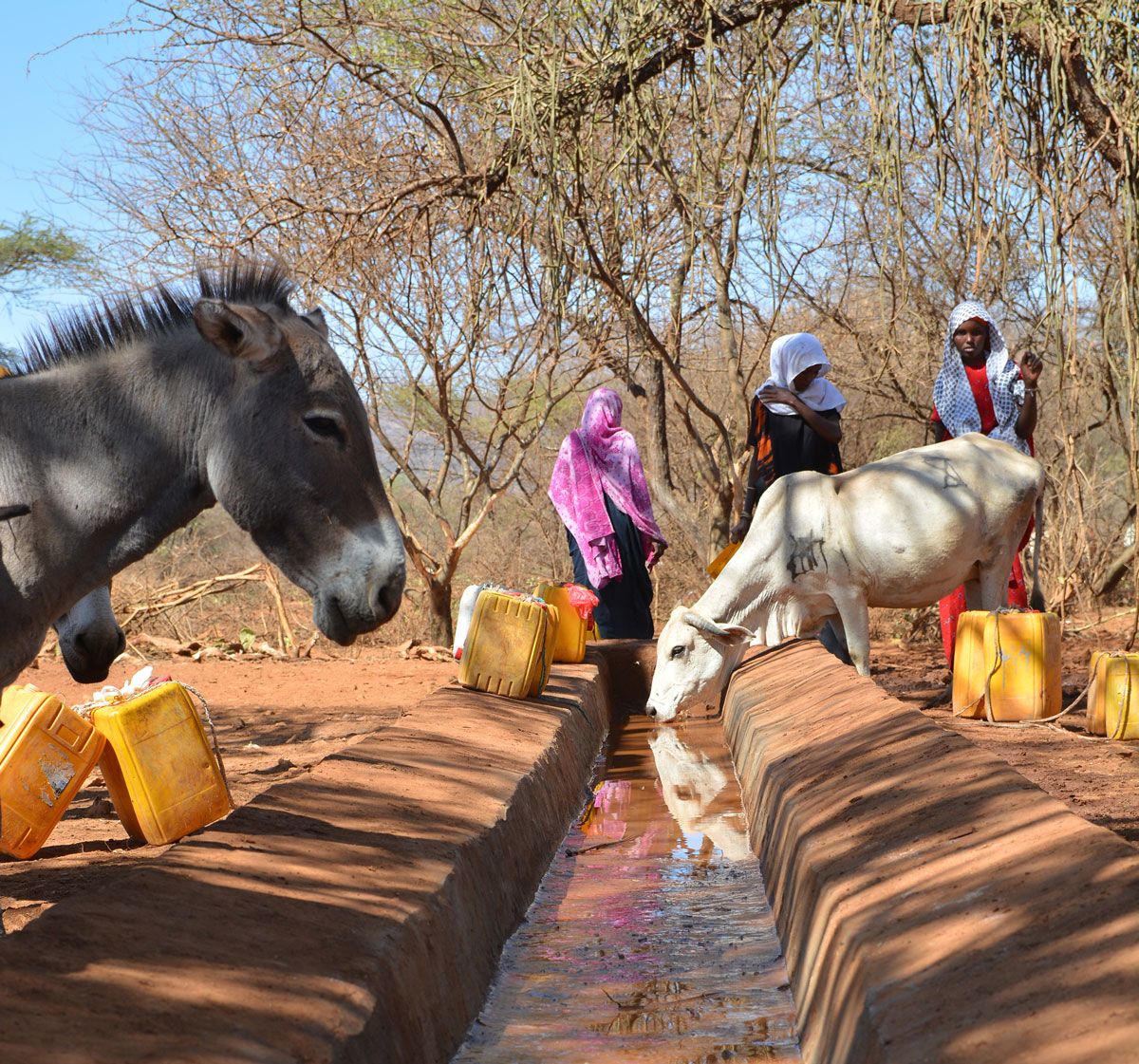
Photo: NRC Ethiopia
Photo: NRC Ethiopia
“After I was denied several times by the refugee community, I was forced to walk all the way to the river to fetch water for my family. Thanks to NRC, now water is at our door step.”
To overcome these challenges and improve access to safe and reliable water to the refugees and host communities, NRC installed 43.74Kw photovoltaic system (162 solar modules each 270w), undertook well development and cleaning of the shallow wells. Also, expanded the water systems to Lugal Kebele, located 3.5km away from the refugee camp. The project not only resolved water access but also improved social cohesion between refugees and host communities as well as the green energy contributing positively to the environment. Preliminary outcomes of the project indicate the refugees and host communities can access a sufficient amount of water daily at proximity to their households. This outcome is due to increased production of the wells and reliability of the system. As confirmed by UNHCR WASH Focal point, the operating hours of the borehole have reduced from 14 to 7 hours/day and fuel consumption by 44% thus saving on costs which can be channelled to other needs. Also, beyond economic considerations, reliability, sustainability and environmental impact of this solar scheme would contribute to strengthening social cohesion among refugee and host community members. This was part of Dolo-ado Improved Social Cohesion Initiative (DISCO) project which is a part of the Regional Development Protection Program (RDPP) funded by the European Union.

Be a great organisation to work for
Staff health, safety and security (HSS)
“When fighting broke out in Tigray region in early November, NRC arranged for us to be relocated to safety through a UN convoy. Waiting for five hours in the dark, surrounded by heavily armed forces on both sides and the fear of getting caught up in a crossfire was the most dreadful feeling of our lives. But NRC kept its promise, got us out safely and have given us the support we have needed to continue working despite the situation. NRC not only serves refugees or people in need but also gives equal attention to its staff’.”
In 2020, five HSS officers have been recruited for all AOs who are responsible for the establishment of workplace Health safety and security, which has in turn boosted staff morale. NRC Ethiopia also moved from medical allowances for staff to Medical Insurances. It not only provides for a higher medical cover but also allows for staff to get treated without having any cash at hand.
“I am really satisfied with the medical insurance option. When my child fell sick and I was short of money, all I had to do was to take my child to hospital and we were able to get treatment without incurring any cost.”
“With the credit facility, I don’t have to worry if I have money in my pocket or not, to access treatment. In addition, the cover has increased almost by three times which means I have enough to cover my family’s needs.”
Growing our own
“When I look at my career path starting from a Security Guard positon to Logistics Coordinator, I believe NRC was born for me. Yet I still have a dream to see myself at expat level! With its support, I have pursued advanced studies as well as varied capacity building courses enabling me to reach where I am today. I have witnessed NRC not only supporting those in need but also its staff.”
“I joined NRC five years ago as an intern in the Information, Counselling and Legal Assistance (ICLA) team. From then till now, I have taken advantage of development opportunities within the organisation that have grown my career. My conviction in my career growth and development while working in NRC continues.”
Working towards a gender balanced organisation
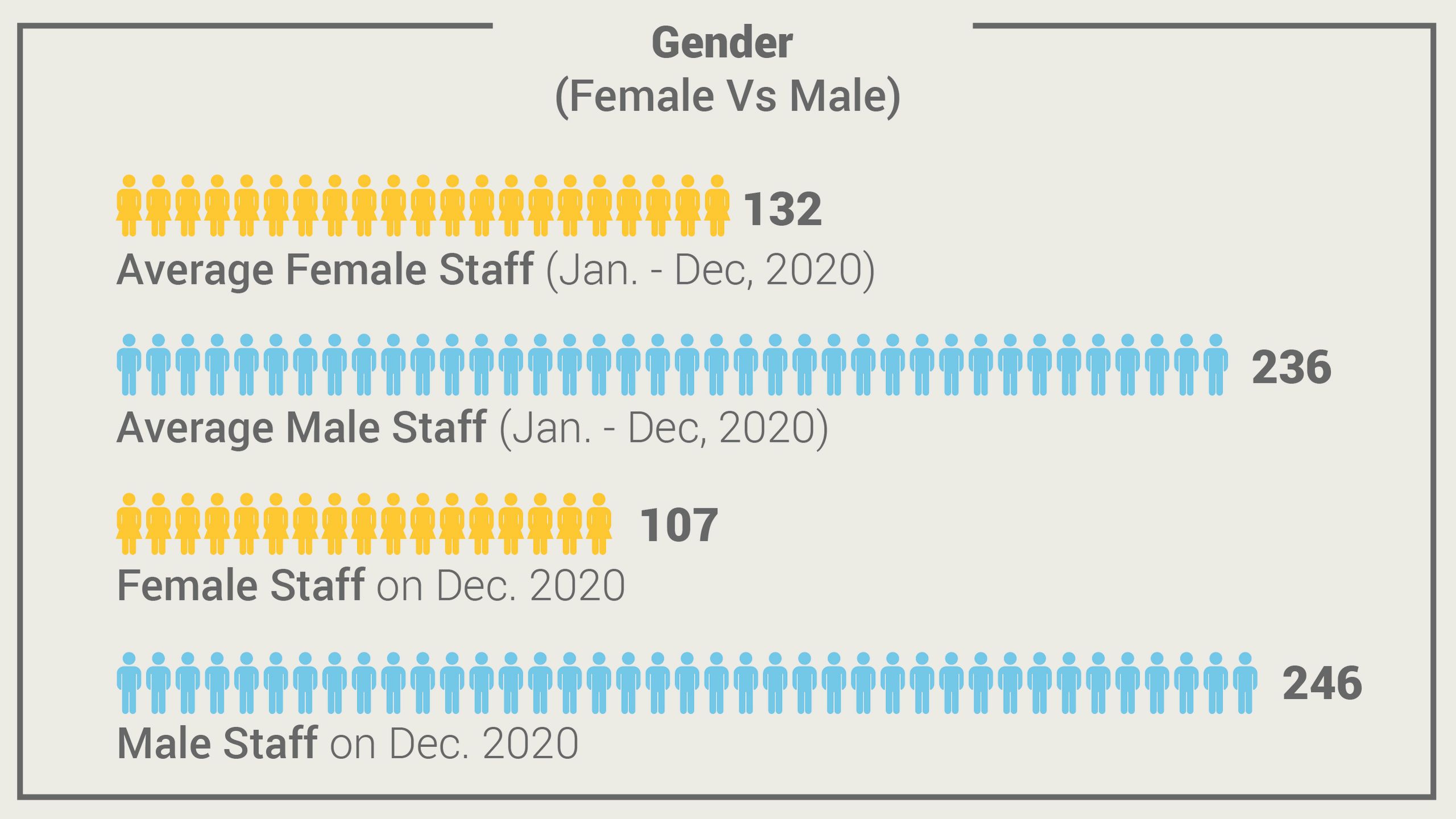
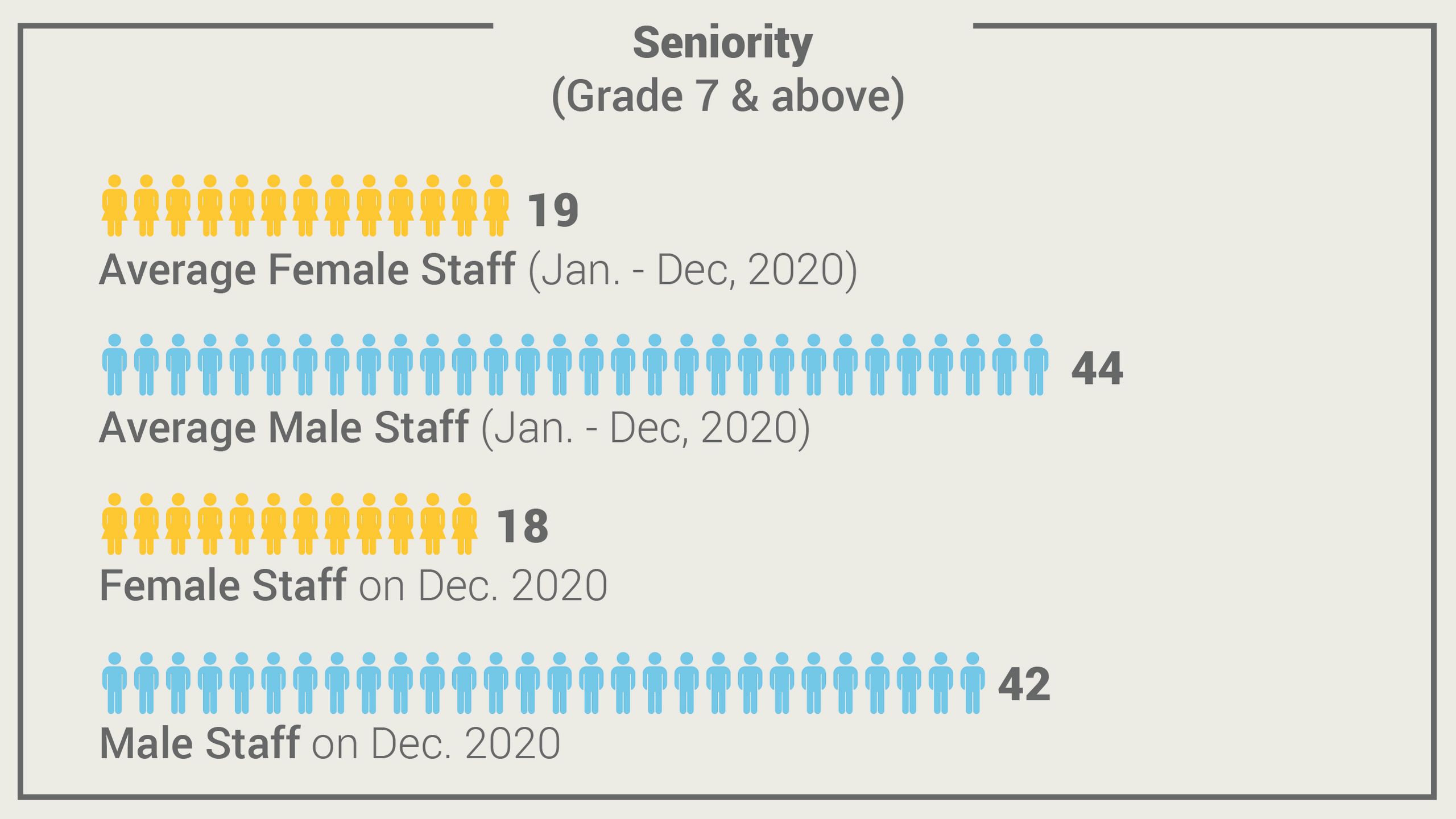
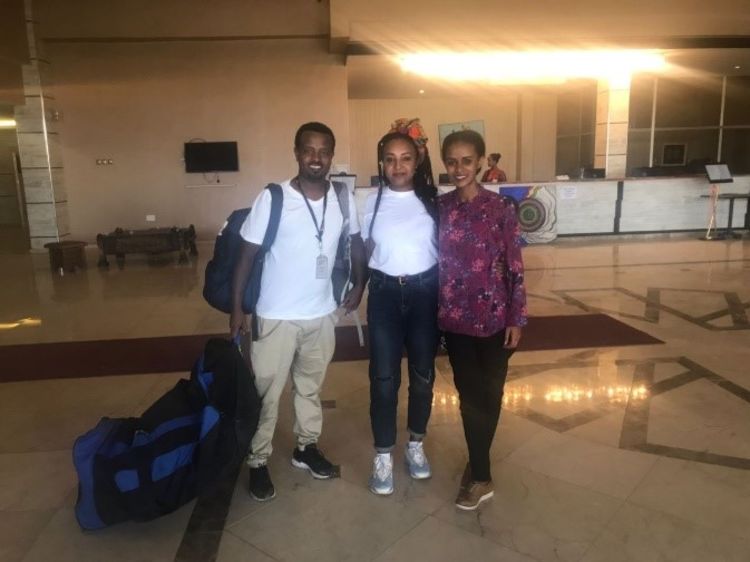
NRC colleagues repatriated from Tigray region in November, after the conflict started. Photo: NRC Ethiopia
NRC colleagues repatriated from Tigray region in November, after the conflict started. Photo: NRC Ethiopia
Be a great organisation to work for

NRC colleagues repatriated from Tigray region in November, after the conflict started. Photo: NRC Ethiopia
NRC colleagues repatriated from Tigray region in November, after the conflict started. Photo: NRC Ethiopia
Staff health, safety and security (HSS)
“When fighting broke out in Tigray region in early November, NRC arranged for us to be relocated to safety through a UN convoy. Waiting for five hours in the dark, surrounded by heavily armed forces on both sides and the fear of getting caught up in a crossfire was the most dreadful feeling of our lives. But NRC kept its promise, got us out safely and have given us the support we have needed to continue working despite the situation. NRC not only serves refugees or people in need but also gives equal attention to its staff’.”
In 2020, five HSS officers have been recruited for all AOs who are responsible for the establishment of workplace Health safety and security, which has in turn boosted staff morale. NRC Ethiopia also moved from medical allowances for staff to Medical Insurances. It not only provides for a higher medical cover but also allows for staff to get treated without having any cash at hand.
“I am really satisfied with the medical insurance option. When my child fell sick and I was short of money, all I had to do was to take my child to hospital and we were able to get treatment without incurring any cost.”
“With the credit facility, I don’t have to worry if I have money in my pocket or not, to access treatment. In addition, the cover has increased almost by three times which means I have enough to cover my family’s needs.”
Growing our own
“When I look at my career path starting from a Security Guard positon to Logistics Coordinator, I believe NRC was born for me. Yet I still have a dream to see myself at expat level! With its support, I have pursued advanced studies as well as varied capacity building courses enabling me to reach where I am today. I have witnessed NRC not only supporting those in need but also its staff.”
“I joined NRC five years ago as an intern in the Information, Counselling and Legal Assistance (ICLA) team. From then till now, I have taken advantage of development opportunities within the organisation that have grown my career. My conviction in my career growth and development while working in NRC continues.”
Working towards a gender balanced organisation


Our response to Covid-19
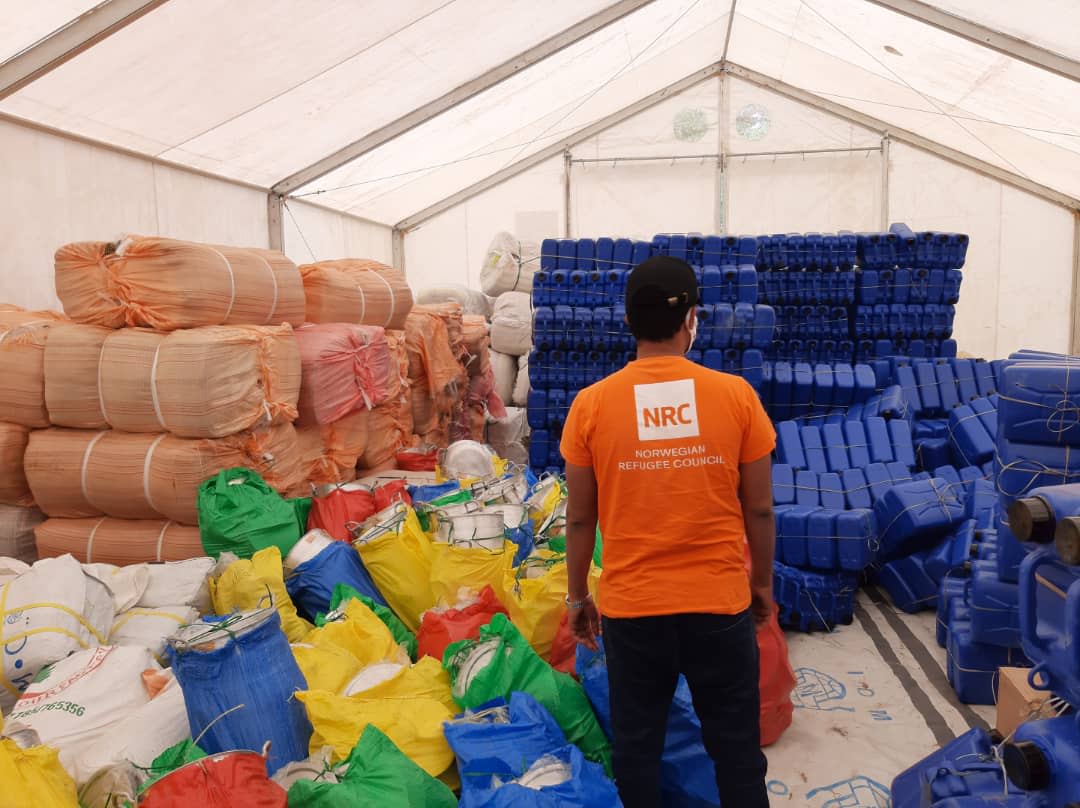
In Oromia- Bule Hora, Benishangul Gumuz, Gambella, Tigray-Shire and Somali-Dollo Ado and Jigjiga areas, NRC is providing shelter repair kits to the affected population to ease overcrowding in the camps.
- Distributed Personal Protective Equipment including sanitizer, alcohol and face masks.
- Established hand washing stations.
- Awareness-raising through group discussions, mass sensitization and distributed IEC materials.
- Provided counselling and legal assistance through one on one sessions, phone call and text messages.
- Distributed emergency shelter Non Food Item’s to quarantine, isolation and treatment facilities.
- Constructed temporary showers, laundry platforms and water tanks for quarantine centres.
- NRC Ethiopia has also worked proactively on protecting it staffs from the pandemic disease- Covid-19 through awareness raising, availing necessary Personal Protective Equipment (Sanitizers, masks, gloves etc...) and hand wash facilities.
Cash cushion for vulnerable groups in Shire refugee camps
In Tigray region where Eritrean refugees are hosted, about 1,400 Covid-19 cases were reported, including in Adi – Harush and May Ayni refugee camps. To contain the spread and the risk of community based transmission, the regional government of Tigray imposed a partial lockdown and movement restriction which came with its fair share of economic bites and hardships. However, this led to diminished market supplies, skyrocketing prices of essentials and several reported cases of gender based violence largely caused by the economic shocks. The most vulnerable in the camps –elderly people, disabled people, single families mostly headed by women – bore the most brunt of the hardships.
NRC was able to assist 600 vulnerable people from the four camps of Adharush, Mai Ayni, Hitsats and Shimelba, with multi-purpose cash of 1500 ETB (about $40) monthly and for four months, transferred in two tranches through a bank transfer modality, the first of its kind in NRC operation in Ethiopia. In partnership with local banks and ARRA, NRC opened a bank account for each of the 600 beneficiaries, to enable them to conveniently access their own money as well as link them to mainstream financial services. This would also mean that refugees have the opportunity to prioritize their needs and stimulate the local market. In addition, a small amount of funds would also go into information sharing and sensitization messages through local radio stations on protective measures against Covid-19 in the camps.
Funding overview
In 2020, NRC secured multiyear grants and emergency funding in response to Covid-19, totalling the income forecast to 227M NOK.
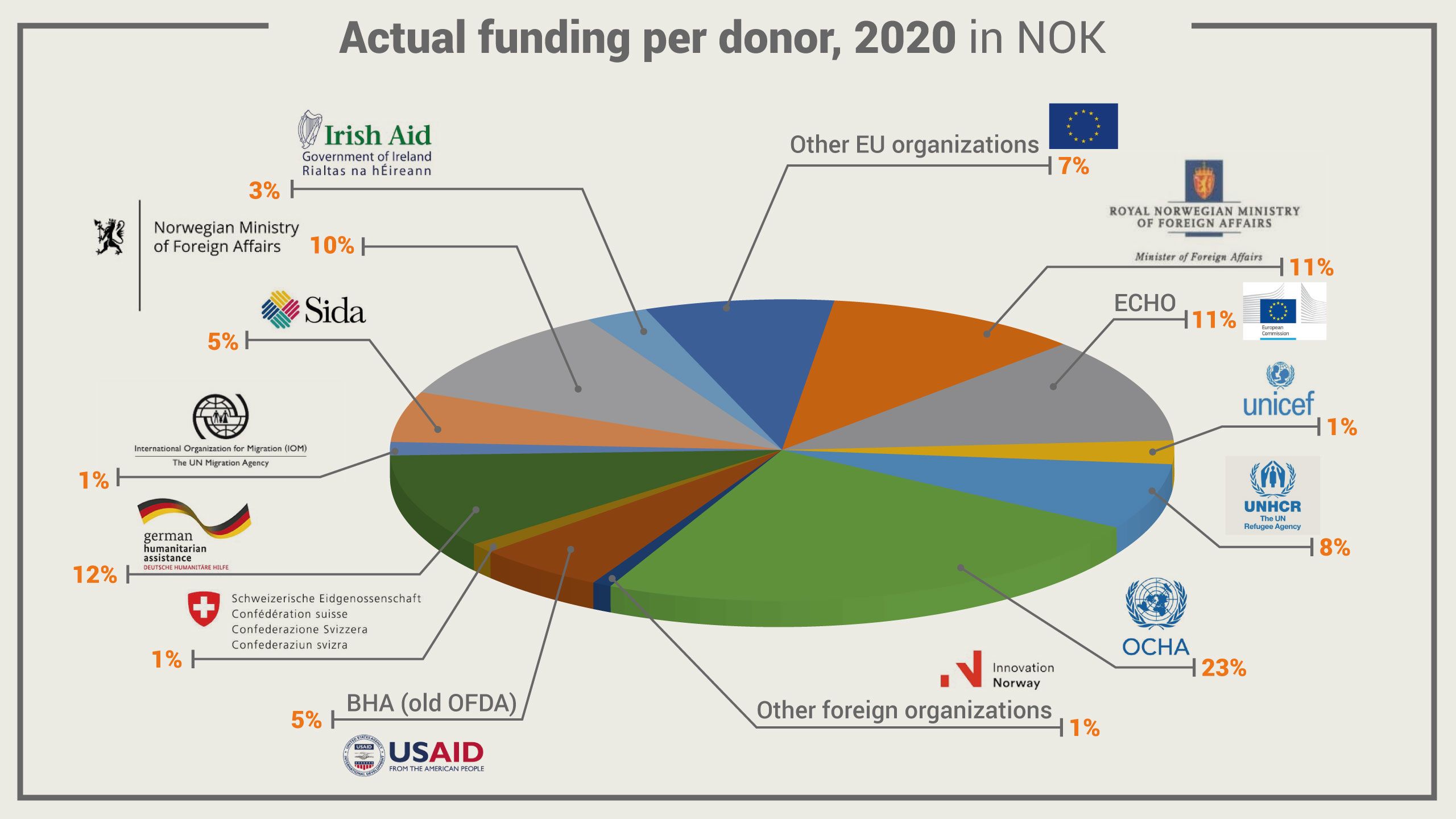
Our partners
Government Partnerships
NRC in 2020 has worked closely with government stakeholders. Special mention of our work with the Ministry of Education in developing online course curriculum and supporting the ministry with learning via radio programmes in remote locations. With the Ministry of Health, NRC partnered in supporting to establish Covid-19 Isolation and quarantine centers.
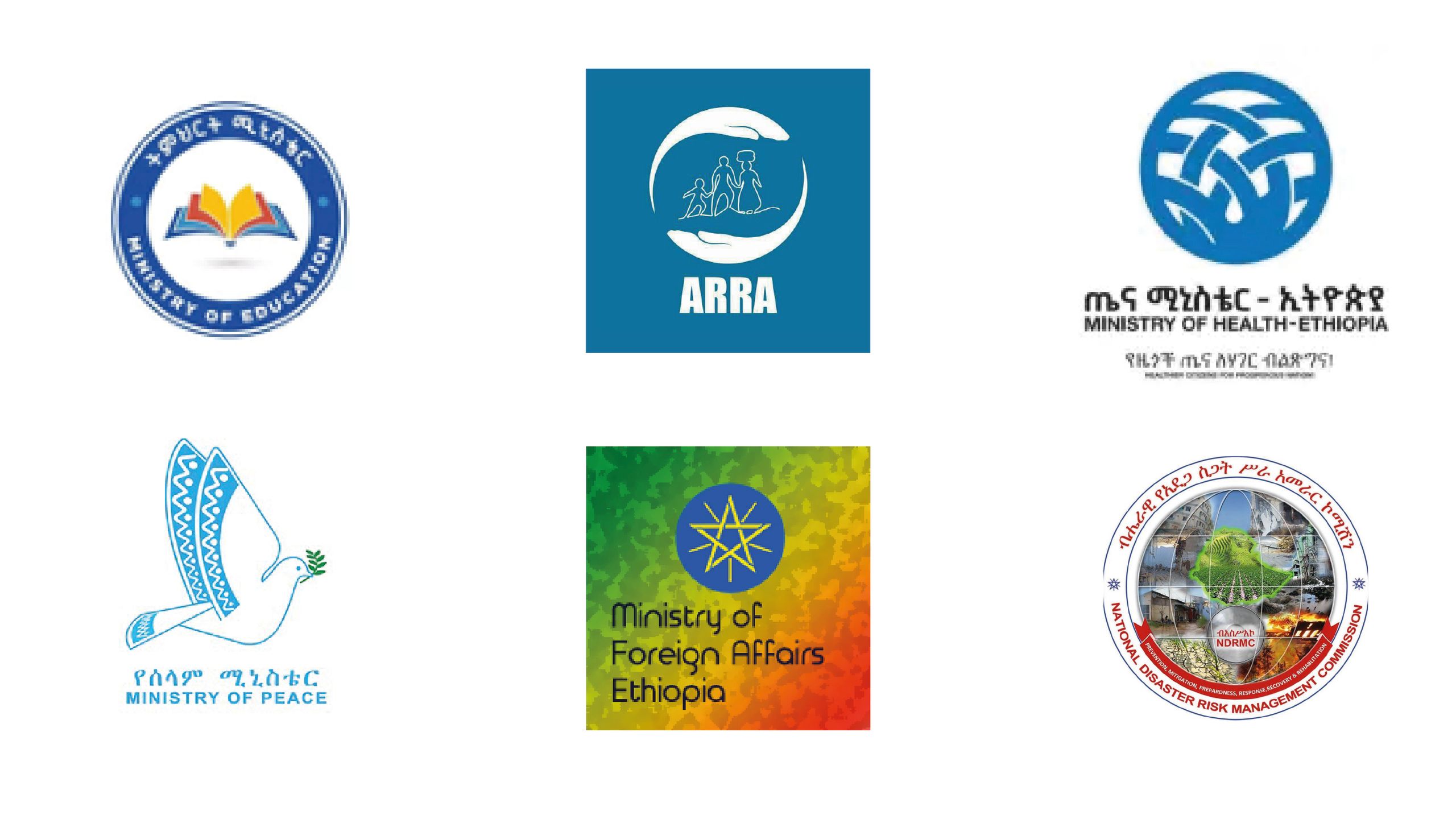
Strategic national partnerships
NRC continues to collaborate with strategic national partners that add value with diverse expertise and experience to reach wider population and have lasting impact. NRC is constantly looking for new, innovative and effective ways to deliver its response to the people that it serves. To facilitate this, NRC is partnering with the below entities for a quality and effective programme delivery.
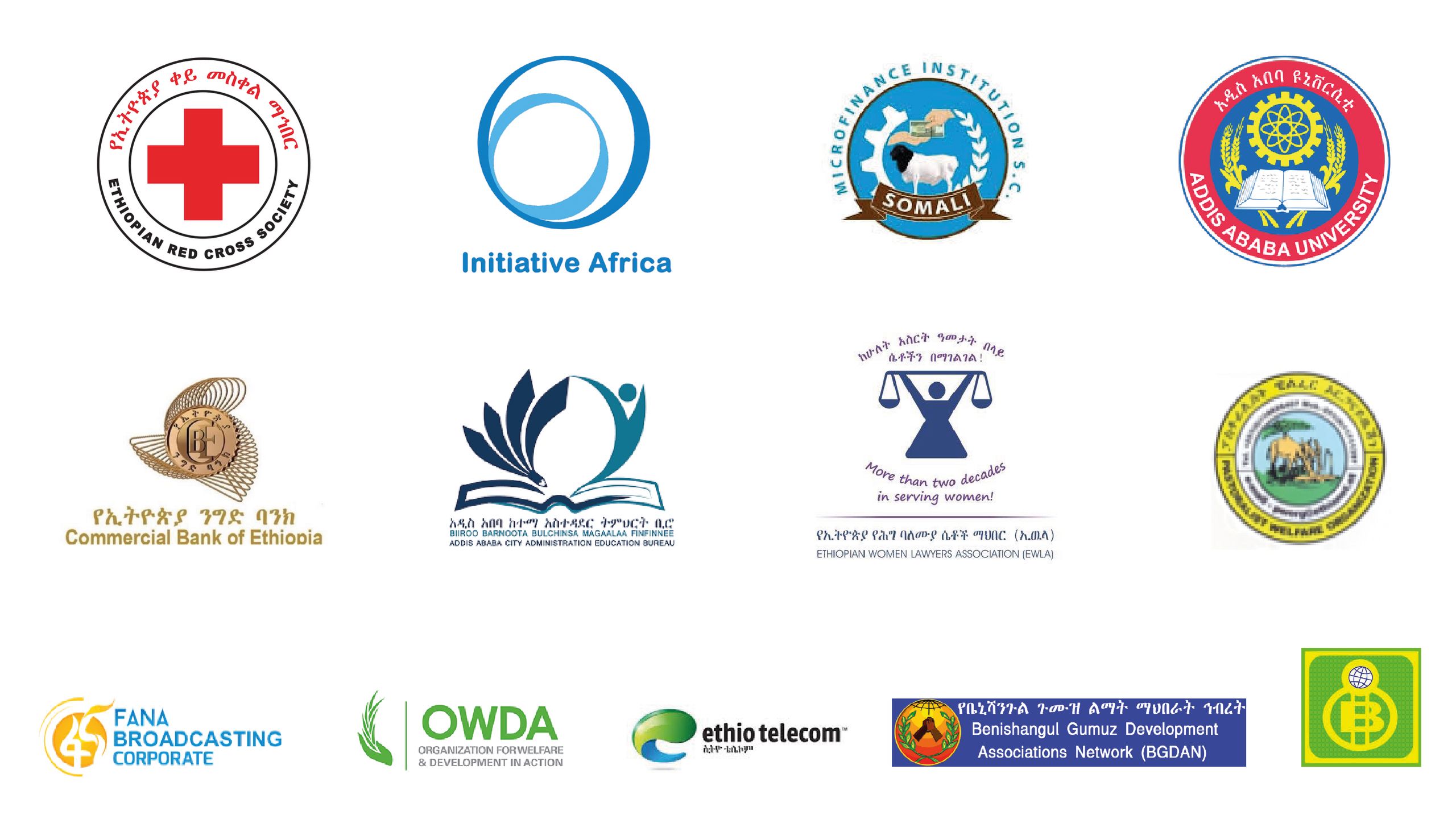
“OWDA has successfully implemented several projects in partnership with NRC Ethiopia in Somali region. OWDA enjoyed working with NRC through establishing a strong cordial relationship based on shared commitments, mutual respect, transparency and accountability. Many thanks for your partnership and support.”
Mohammed Abdulkadir, Executive Director, OWDA.
“On behalf of Congolese refugee community in Addis Ababa the support provided from NRC to our community is very good, especially NRC’s response due to the outbreak of the pandemic Covid-19. We got support through multipurpose cash and radio distribution which makes significant change in our community. Moreover, the support NRC given to the refugees through training and business start-up capital makes refugees self-resilient. We as a representative anticipate continuous support from NRC to reach more people who are in need.”
Sahle Mohaba, Congolese refugee representative
“In Gambella, NRC’s presence has contributed in ensuring life-saving emergency shelters for all, being one of the primary partners in the reopening of Pagak transit centre. During the Covid-19 pandemic they have facilitated the decongestion of communal accommodations in the reception centre, while supporting local communities relocated from the reception centre area by building transitional shelters for various families. NRC has also been dedicated to educating the youth, by providing valuable trainings with their accelerated learning programme as well as their vocational skill trainings in different refugee camps. Their support also reaches host communities by constructing and maintaining school infrastructures. This partnership has been of vital importance to UNHCR, proving that working together to improve the lives of people of concern is the only way forward.”
Ilija Todorovic, Head of Sub Office, Gambella UNHCR

